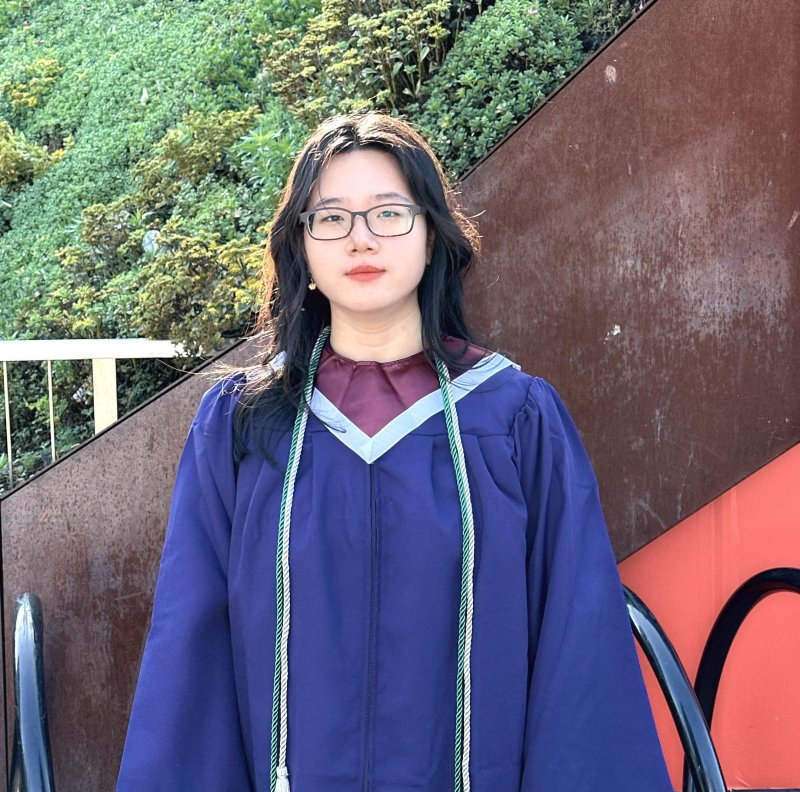People
Staff
Processing Community Lead
Raphaël de Courville (he/him) is a generative artist and designer from Paris, now based in Berlin. Since 2012 he is a founding member and co-host of Creative Code Berlin, an initiative that fosters collaboration between artists and coders through monthly events. He holds advanced diplomas in Typographic Design from École Estienne and ÉSAD Amiens. Raphaël shares his work and teaches creative coding through weekly live streams on Twitch. He speaks French, English, Italian, and some German.
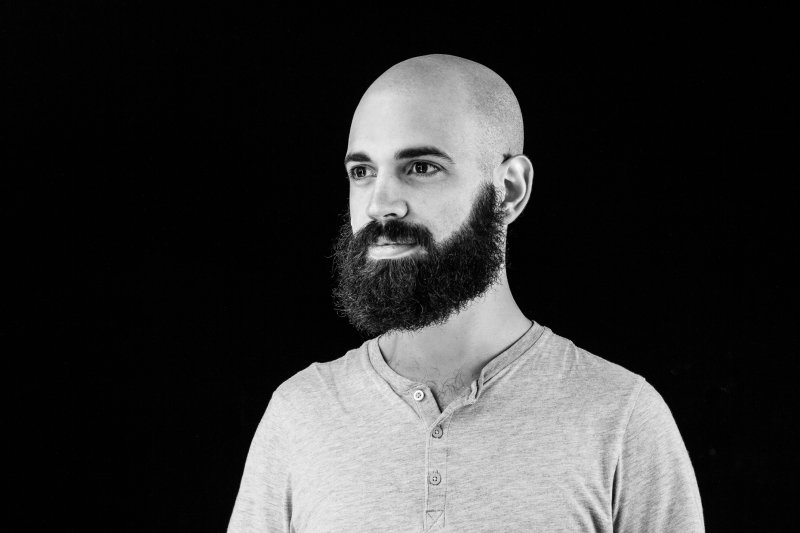
Processing Project Lead
Moon Davé (she/her) is an improvisational sound artist and technologist. Moon loves to dive deep into the inner workings of computers, and always encourages people to be unafraid to do the same. She is passionate about digital privacy rights, libraries, archival, ASMR, DIY, and educational access. In her spare time she loves to bake, and work on MOONSHEETS (spreadsheet software).
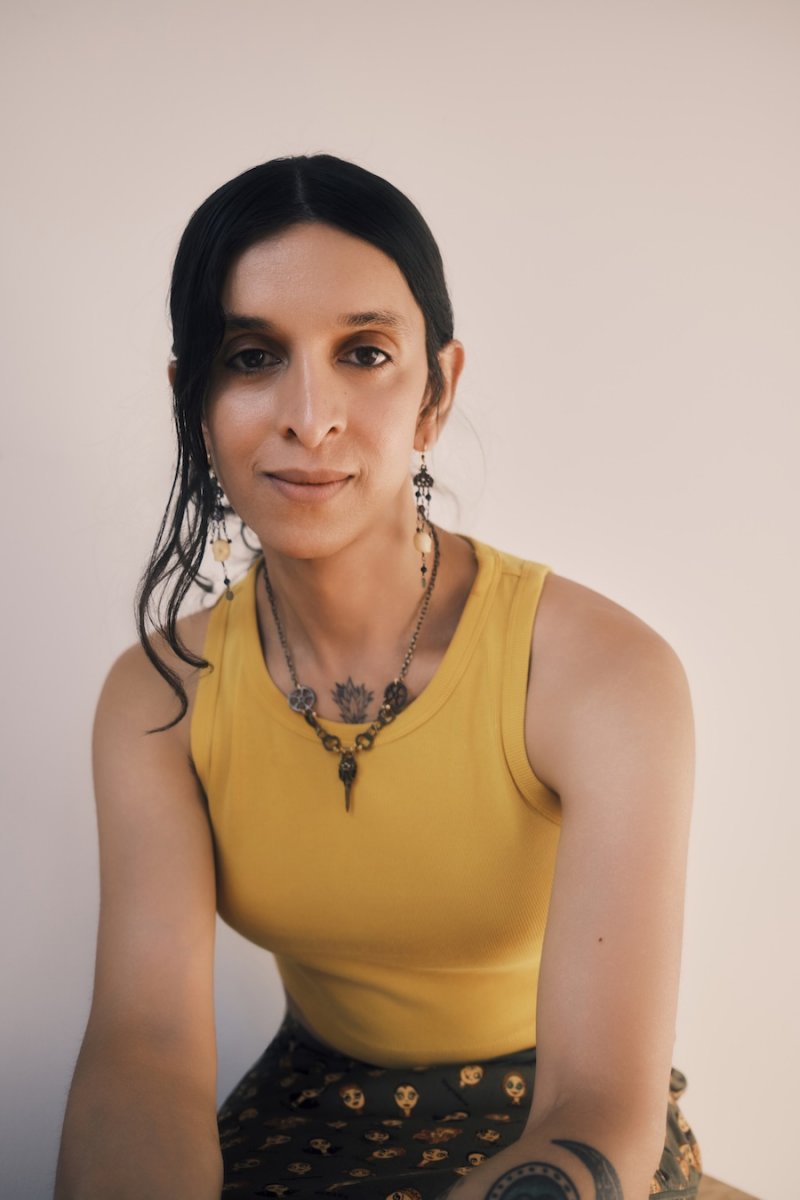
Co-Executive Director
Roxana Hadad, PhD (she/her) has spent her career researching and developing equity-focused educational environments in computing. As Associate Director of UCLA Center X's Computer Science Equity Project, she was a director of Seasons of CS, a CSforCA initiative bringing equity-minded CS professional learning across California. She also managed SCALE-CA, an NSF-funded research partnership that developed the CS Equity Guide for education leaders. Previously, she served as Director of Math, Science, and Technology at Northeastern Illinois University's Center for College Access and Success. As a Latina and artist who benefited from computing opportunities, Roxana is committed to expanding access to quality computing education for all students.
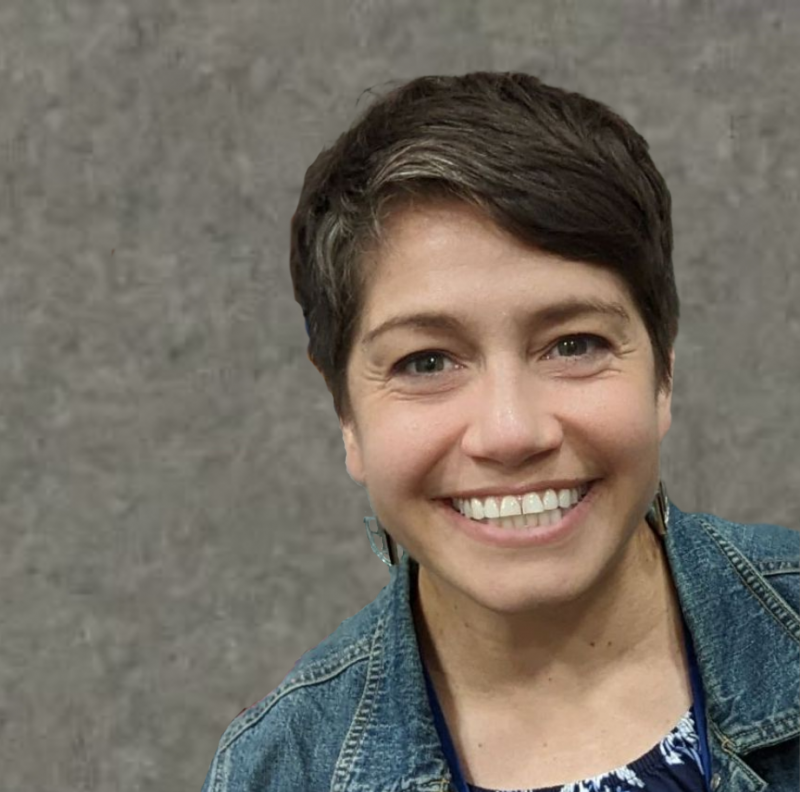
Engineering Manager and p5.js Project Lead
Kit Kuksenok (they/it) is an artist, writer, and coder. Since first learning to code in 2002, they have worked as a systems integrator, web developer, software engineer, data analyst, and lecturer in computer science. Their art/writing is informed by this proximity to technology and its variegated uses; they’ve taught numerous courses exploring the role of technology in society through algorithmic art. They hold a PhD (2016) in Computer Science and Engineering from the University of Washington (Seattle). Born in Ukraine, and having lived both in the US and in Germany, Kit speaks English, Ukrainian, Russian, and some German.
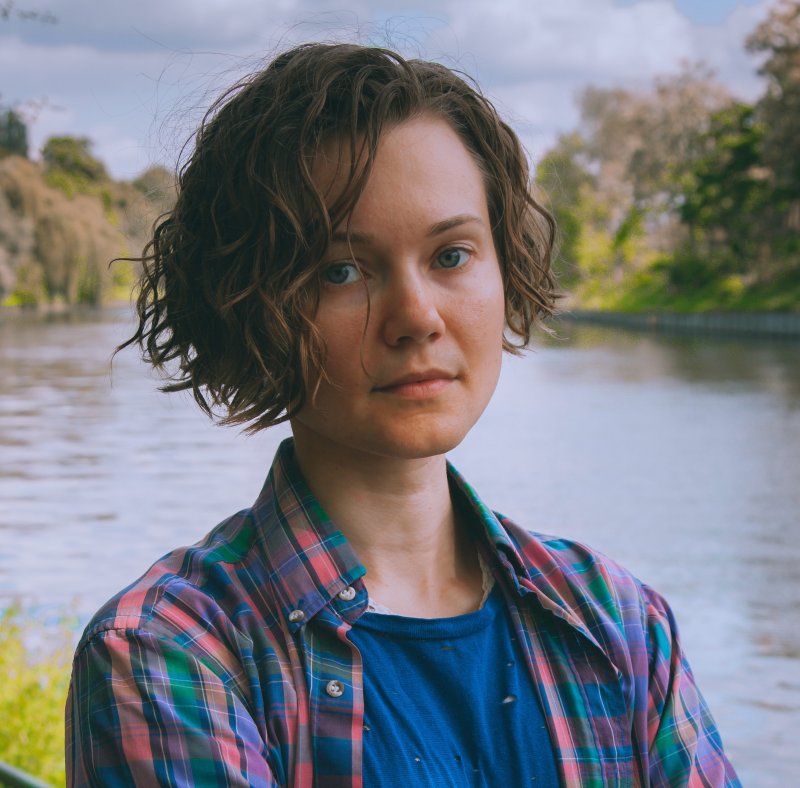
p5.js Editor Project Lead
Rachel Lim (she/her) is a Korean-American programmer whose works explore articulating vulnerability, discomfort, and grief with gentleness and humor. She is currently a software developer within the edtech space. She holds a master’s degree from the Interactive Telecommunications Program at NYU, where she also received a BA in Art History. In her spare time, she loves crafting knick-knacks and running outdoors.
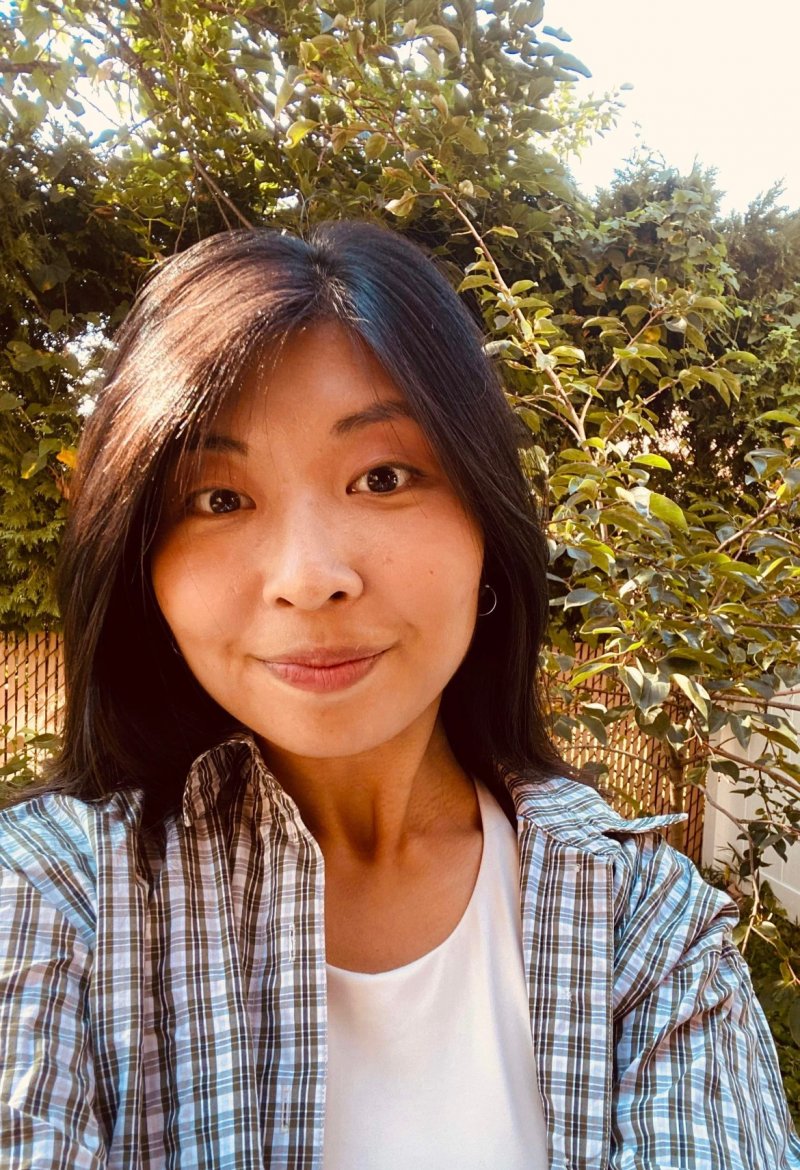
Finance Manager
Charles Reinhardt (he/him) is a bookkeeper and financial manager based in Queens. He has a background in DIY and independent arts and an MPA from NYU's Wagner School of Public Service, focusing on non-profit financial management. He loves reading books, cooking and practicing languages.
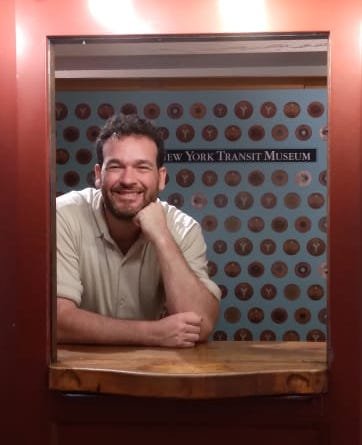
Program Manager
Amy B. Woodman (she/they) is a program leader, curriculum designer, and education strategist. With over a decade in K-12 computer science and creative coding, she has led projects like CS Connections and Hour of Code, including the Star Quilts module—co-developed with Native educators and featured by the BBC. She co-founded The Detroit Food Academy and scaled 9 Dots’ Get Coding program across Los Angeles. Raised in Hawaiʻi by Korean and Dutch-Indonesian immigrant parents, Amy is driven by a commitment to creating educational experiences that reflect and uplift diverse student communities. In quiet hours, she experiments with clay and glaze recipes.
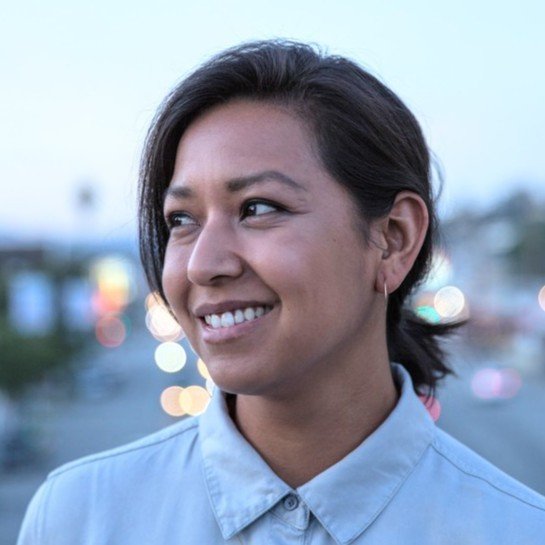
Co-Executive Director
Xin Xin (they/them) is a Taiwanese-American cultural producer exploring community-driven technology in creative and educational spaces. As creator of TogetherNet and co-editor of the Critical Coding Cookbook, Xin advocates for liberatory software culture through the reclamation and subversion of power dynamics embedded within digital systems.
Born in Taipei and raised in Massachusetts, Xin brings a multicultural perspective to questions of technology and sovereignty. An Eyebeam Rapid Response for a Better Digital Future Fellow and Sundance Art of Practice Fellow, their genre-bending practice weaves together art, education, organizing, and technological experimentation—interrogating who controls technology, who benefits from it, and the power of collectives in building a more equitable digital future.
Xin works with the Processing Foundation to support open-source software for artists and serves as an Assistant Professor of Interaction and Media Design at the New School, where they work with emerging practitioners to develop critical and socially-engaged approaches to technology and design.
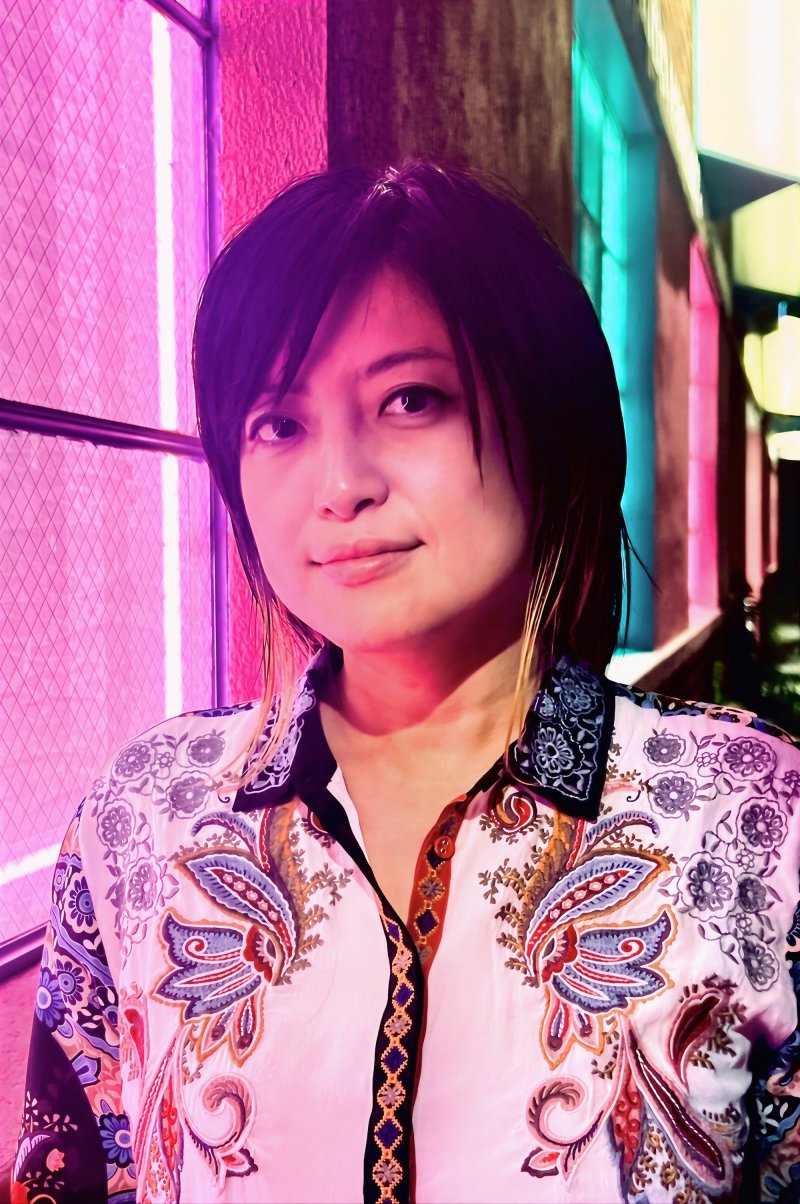
Director of Creative Technology
Qianqian Ye (they/she) is a Chinese artist, designer, and creative technologist based in Los Angeles. Trained as an architect, they create digital, physical, and social spaces that explore the relationships between technology and systems of power. From 2021 to 2025, Qianqian served as the p5.js Lead at the Processing Foundation, where she directed the design, development, and community of p5.js, advancing its mission to make creative coding more accessible and inclusive. Qianqian has been an Internet Archive DWeb Fellow, an NYU ITP/IMA Project Fellow, and a Senior Civic Media Fellow at the USC Annenberg Innovation Lab. She also teaches creative coding as an Adjunct Associate Professor in USC’s Media Arts + Practice program. Qianqian currently leads projects, programs, and partnerships at the Processing Foundation that connect open-source technology, community, and creative practice.
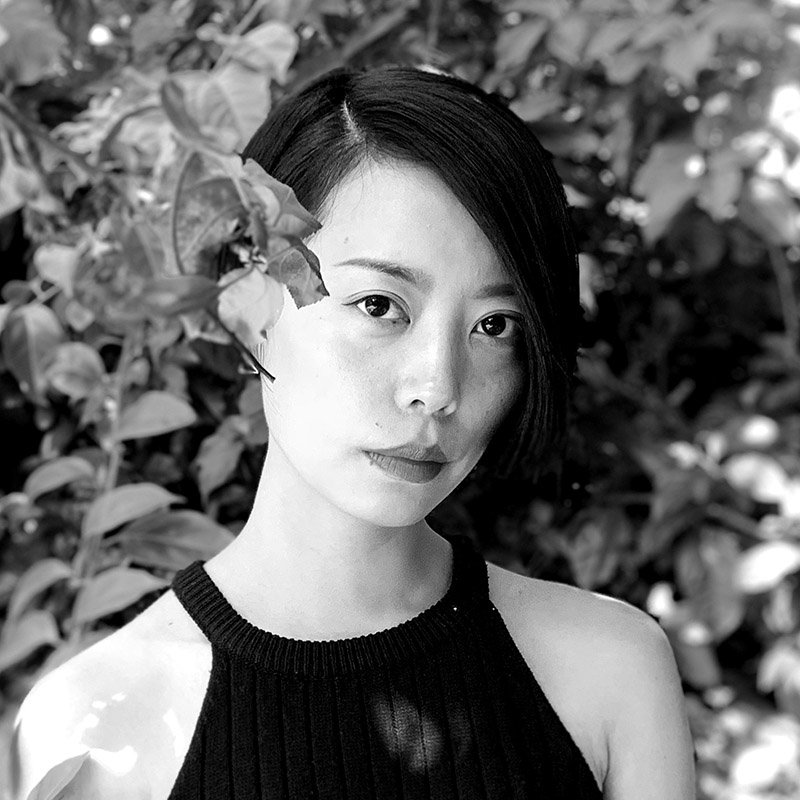
Manager of Communications
Patt Vira (she/her) is a Bangkok-based creative technologist, educator, and content creator whose work brings together accessible technology, community learning, and playful experimentation. Her work is grounded in making creative technology joyful and approachable, guided by curiosity and hands-on exploration. She creates widely used educational resources, including 150+ p5.js tutorials, that support learners from diverse backgrounds.
Patt holds a bachelor’s and master’s degree in Mechanical Engineering from Carnegie Mellon University and an MBA from Yale University. In her spare time, she enjoys running and eating spicy food.

Mentors
Processing Mentor
Roopa Vasudevan is a new media artist, computer programmer, and researcher investigating default technical practices and protocols, and how they intersect with larger social and economic power structures. Her work has been exhibited and featured by press outlets internationally, and she has demonstrated a particular and steadfast commitment to artist-led organizations throughout her career. She is a 2024 Processing Foundation Fellow; a 2020 Eyebeam Rapid Response for a Better Digital Future Fellow; a community member at NEW INC, the art and technology incubator at the New Museum (New York), where she was a member of the Art & Code track (in partnership with Rhizome) between 2021 and 2023; and a co-investigator on the Data Fluencies Project, an international research team funded by the Mellon Foundation between 2022 and 2025. Her writing has appeared in venues such as the Brooklyn Rail, New Media and Society, Media-N: The Journal of the New Media Caucus, the Social Science Research Council’s “Just Tech” platform, and ACM Interactions, along with a range of self-published and bespoke collections. Roopa received her PhD in Communication from the University of Pennsylvania in 2023, and an MPS from the Interactive Telecommunications Program (ITP) at NYU in 2013. She is currently an Assistant Professor in the Department of Art at the University of Massachusetts, Amherst.
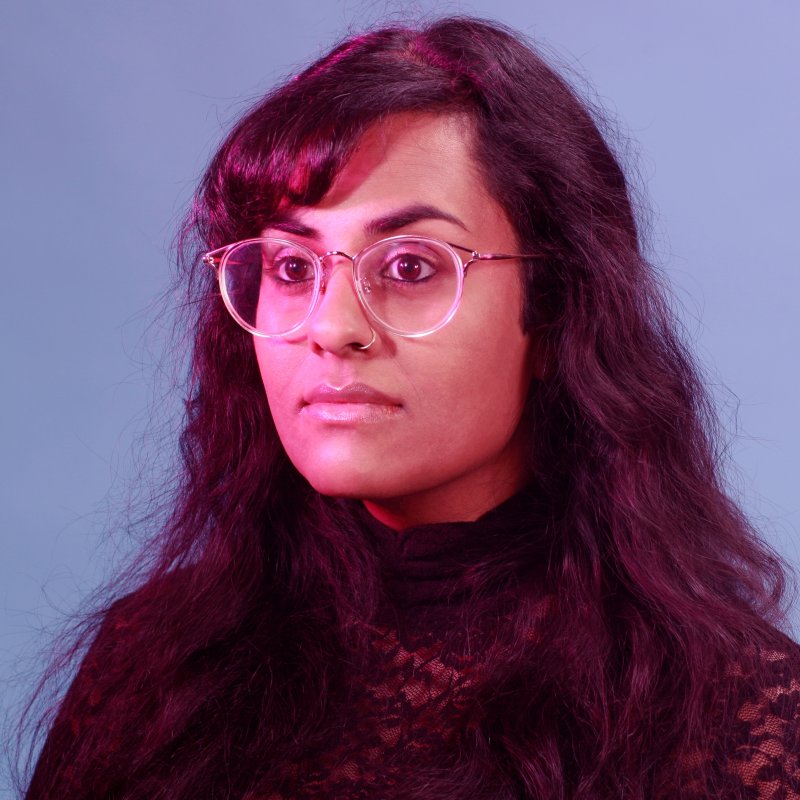
Processing Mentor
Charlotte McElwain (she/her) is an artist, creative technologist, and software engineer working primarily in the Rust programming language with a focus on open source creative coding and 3D graphics tools. She is particularly interested in expanding access to creative coding across different programming languages and communities, working to make GPU-driven rendering techniques more approachable for artists and creative users. She is a maintainer of Nannou, a creative coding framework in Rust, and a core contributor on the Bevy game engine rendering team, where she helps guide rendering architecture to bridge the gap between technical rendering capabilities and artist needs. Her professional work spans a variety of creative technology projects from site-specific interactive installation to distributed computing for creative applications. In addition to her technical practice, her personal artistic practice focuses on textiles, where she explores slow, emergent, and non-algorithmic processes of weaving that contrast with and inform her digital work. Charlotte holds a degree in Media Studies from Macalester College, where she first learned to code through Processing. You can find some of her work on her website or on Instagram.
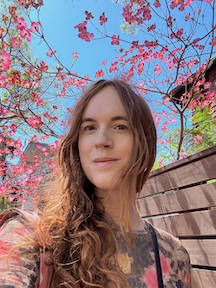
p5.js Mentor
Kenneth Lim (he/him) is an interaction designer and creative coder working with text and language in all its forms. His work and research focuses on translations, machine understanding of language, and development of language in the modern age. As a freelance creative coder, Kenneth has worked on web design/development, AR app development, and interactive installations. He is a Processing Foundation Fellow of 2018 and also a maintainer of the open source p5.js creative coding library. Kenneth has a BA in Graphic Design from Central Saint Martins, an MA in Information Experience Design at the Royal College of Art and a MRes in Creative Computing from UAL Creative Computing Institute. Kenneth is currently a Lecturer and Acting Course Leader of BSc Creative Computing at UAL CCI.
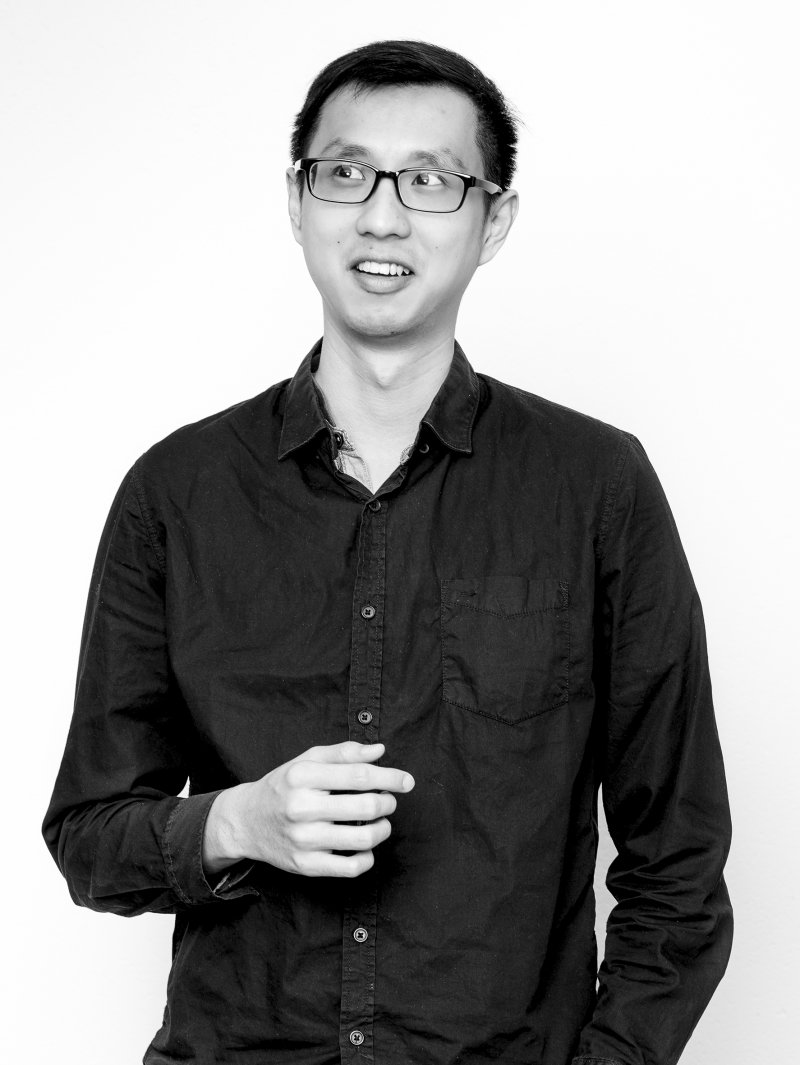
p5.js Editor Mentor
Cassie Tarakajian (they/them) is an Armenian-American educator, technologist, and artist based in Chicago, IL. Their work centers around creating accessible and inclusive tools for making art, and interrogating the relationship between technology and pop culture. They are the creator of the p5.js Editor, an open-source in-browser code editor for creative coding in p5.js, supported by the Processing Foundation. They are also an adjunct professor at New York University's Interactive Telecommunications Program (NYU ITP), teaching creative coding, web development, and making cursed content. They are a Y8 and Y9 member of NEW INC’s Art + Code Track, and in the past have held residencies at NYU ITP, Pioneer Works, and the STUDIO for Creative Inquiry at Carnegie Mellon.
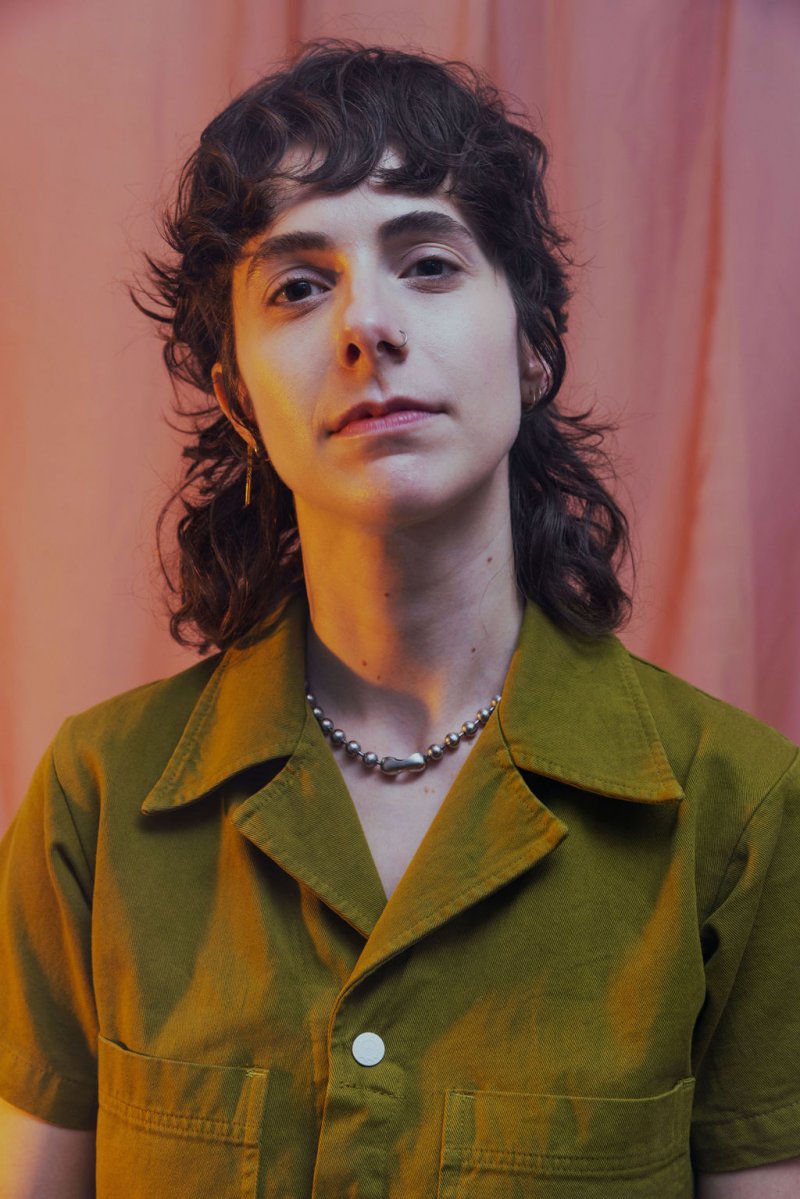
Board of Directors
Board President
Wesley Taylor (he/him) is a print maker, designer, musician, animator, educator, mentor, and curator. He roots his practice in performance and social justice. His work combines, oscillates between, and blurs these different disciplines. His work is multi-disciplinary as well as anti-disciplinary. His individual practice is inextricably linked to his constellation of collectives and networks he has formed over 20 years. Those collectives include: Complex Movements, Talking Dolls Detroit, Design Justice Network, Athletic Mic League, and All Faux Everythings. His work is inspired by elder knowledge, complex science, 90s underground hip hop, punk aesthetics, and science fiction. He is an associate professor at Wayne State University and he splits his time between Detroit, and Stockholm, Sweden where he is a fellow in the OPI (Of Public Interest) Lab at the Kungl. Konsthögskolan.
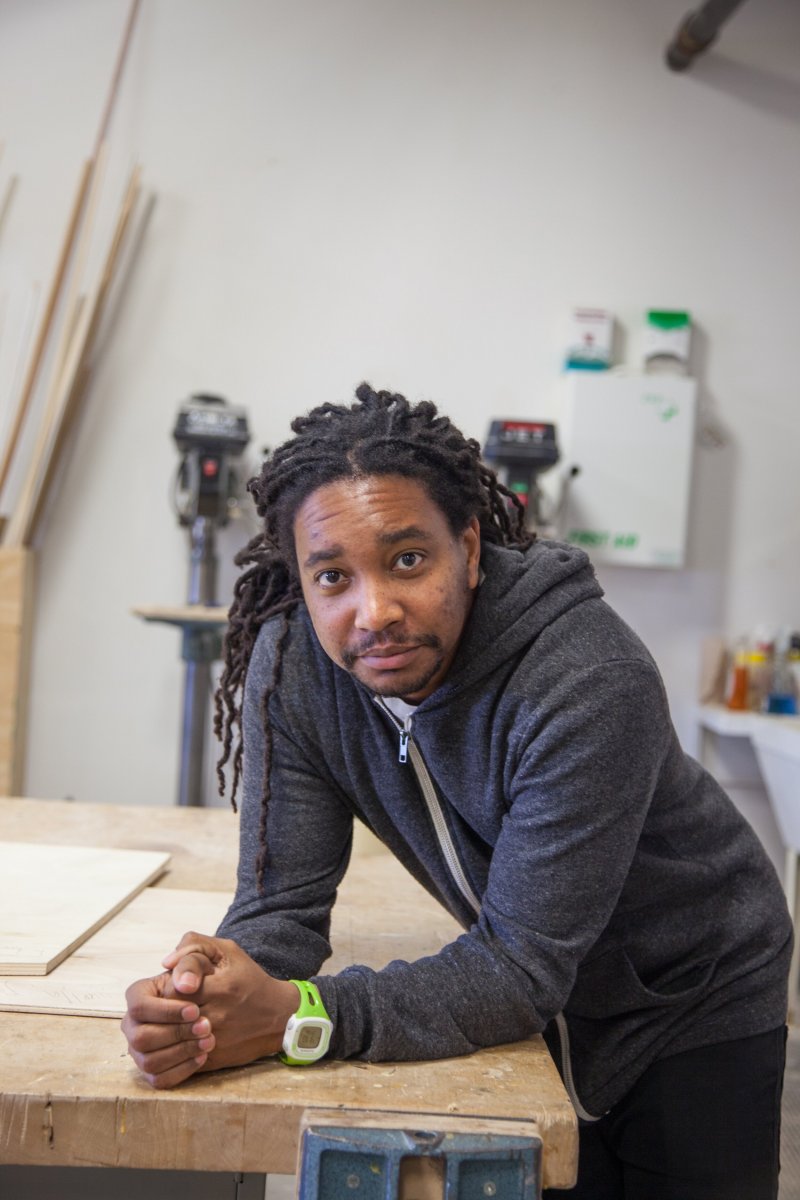
Board Vice President
Cassie Tarakajian (they/them) is an Armenian-American educator, technologist, and artist based in Chicago, IL. Their work centers around creating accessible and inclusive tools for making art, and interrogating the relationship between technology and pop culture. They are the creator of the p5.js Editor, an open-source in-browser code editor for creative coding in p5.js, supported by the Processing Foundation. They are also an adjunct professor at New York University's Interactive Telecommunications Program (NYU ITP), teaching creative coding, web development, and making cursed content. They are a Y8 and Y9 member of NEW INC’s Art + Code Track, and in the past have held residencies at NYU ITP, Pioneer Works, and the STUDIO for Creative Inquiry at Carnegie Mellon.

Board Treasurer
Mathura M. Govindarajan (she/they) is a creative technologist based in Bangalore, India. She runs a non-profit called ‘Paper Crane Lab’, which focuses on making STEM (Science, Technology, Engineering, Mathematics) more accessible and affordable.
She was a fellow and graduate student in the Interactive Telecommunication Program at New York University, and she is now a guest faculty member at NYU. She completed her Electronics and Communication Engineering undergraduate studies at the National Institute of Technology, Surathkal, India.
Her current interests revolve around education, fabrication, coffee, and maps. Overall, she is very enthusiastic when it comes to learning new things. More so, she’s always looking for things that help her bridge the gap between art, science, and technology.
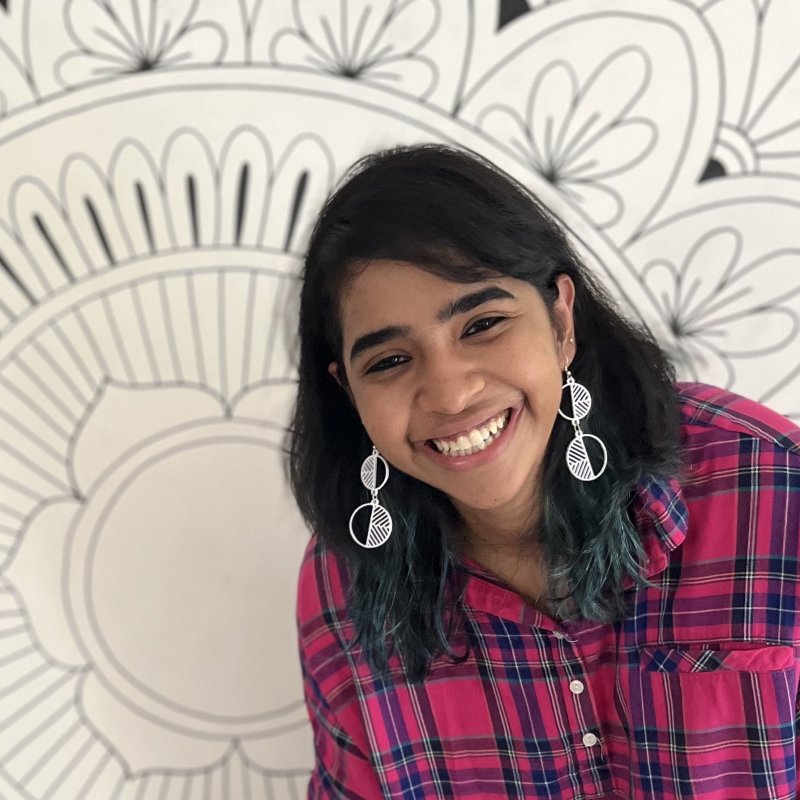
Board Secretary
Shana V. White (she/her) is the Director of CS Equity Initiatives at the Kapor Center. She will be working on Equitable CS Initiatives, supporting both CSforCA and CSforGA, and working with stakeholders in Georgia to improve teachers' professional development and increase participation and success for students of color in K12 CS courses. Prior to joining the Kapor Center, Shana worked for sixteen years in K12 education, serving in both public and private schools as a teacher and instructional technology specialist in metro Atlanta. Shana is passionate about disrupting the status quo, works to connect and create communities for educators online, and is strongly committed to racial justice and equity in K12 schools. She has a B.S. from Wake Forest University, a M.S. from Winthrop University, and an Ed.S from Kennesaw State University. Outside of work, Shana enjoys spending time with her husband and two kids, watching live sports and rom-coms, volunteering, and lifting weights.
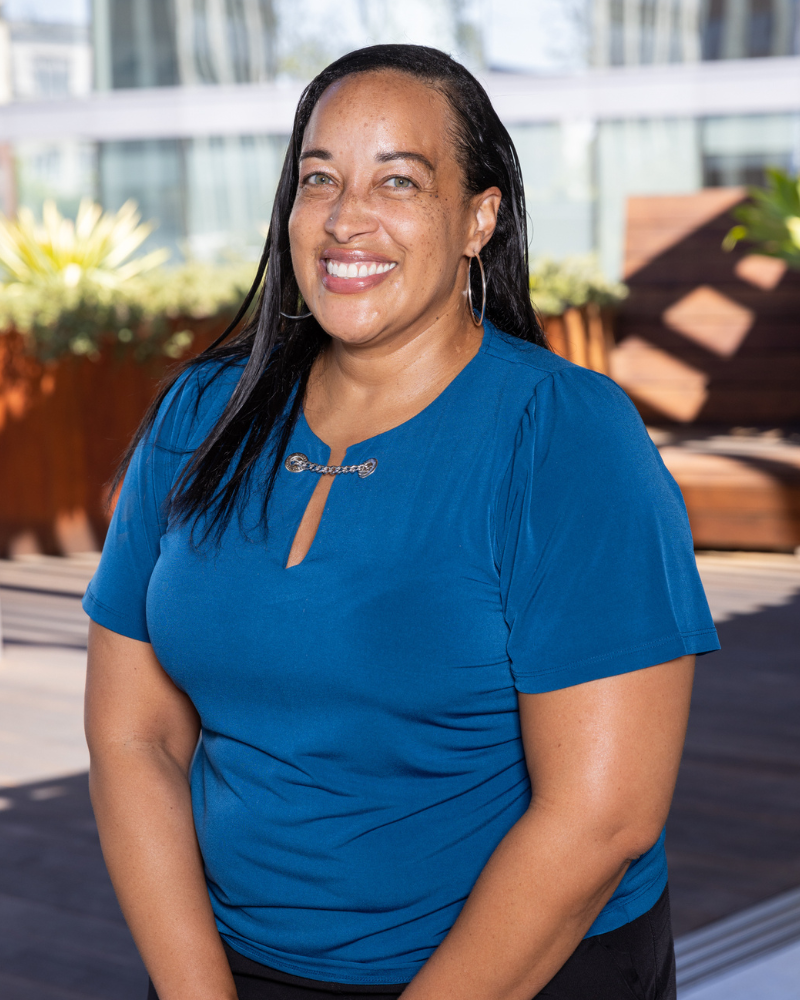
Board Members
AX Mina (she/they) is a creative consultant, futures thinker, and leadership coach. She produces Five and Nine, a podcast, newsletter, and event series about magic, work, and economic justice, with events hosted in venues like The Shed, Festsaal Kreuzberg (Berlin), and NEW INC, and her work has been exhibited in spaces such as the Museum of the Moving Image, the Victoria and Albert Museum, and the Mozilla Festival Open Artist Studio (curated by the V&A Museum and Tate Modern). She has worked on three books, including most recently The Hanmoji Handbook with Jason Li and Jennifer Lee. She has also written for Hyperallergic, The Atlantic, Nieman Journalism Lab, and Places Journal. She is currently a Senior Civic Media Fellow at the USC Annenberg School for Journalism and Communications and a certified trauma-informed yoga teacher.
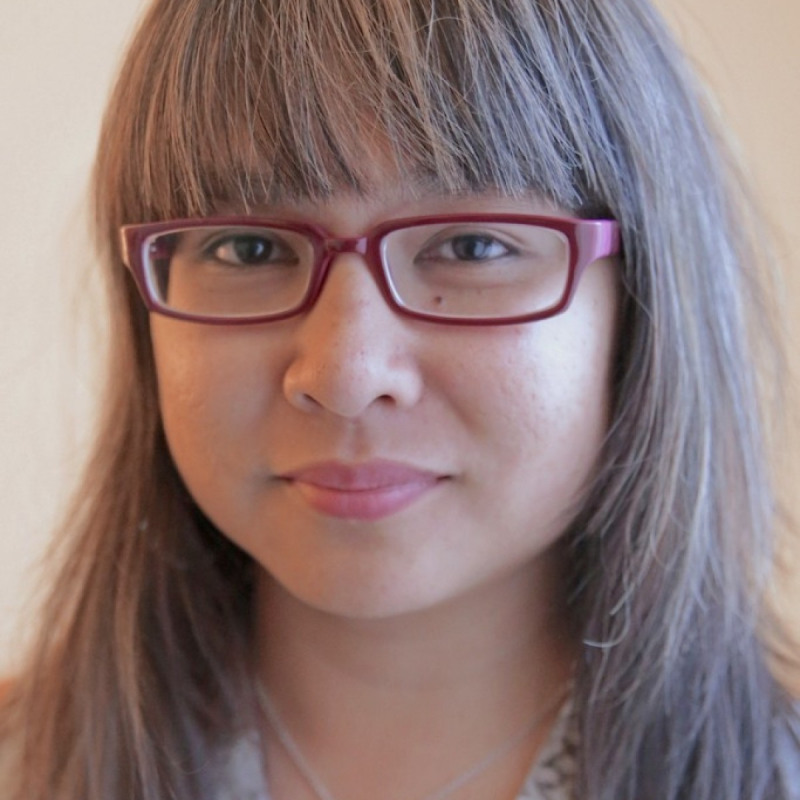
Amelia Winger-Bearskin (she/her) is an artist who innovates with artificial intelligence in ways that positively impact our community and the environment. She is a Banks Family Preeminence Endowed Chair and Associate Professor of Artificial Intelligence and the Arts, at the Digital Worlds Institute at the University of Florida. She founded the UF AI Climate Justice Lab and the Talk To Me About Water Collective. She founded Wampum Codes, an award-winning podcast and an ethical software development framework based on Indigenous co-creation values. Wampum Codes was awarded a Mozilla Fellowship embedded at the MIT Co-Creation Studio from 2019-2020 and was featured at the 2021 imagineNative festival. She continued her research in 2021 at Stanford University as their artist and technologist in residence, made possible by the Stanford Visiting Artist Fund in Honor of Roberta Bowman Denning (VAF). In 2022, she was awarded a MacArthur Foundation Award as part of the Sundance AOP Fellowship cohort for her project CLOUD WORLD / SKYWORLD, a commission by the Whitney Museum of American Art for the Sunrise/Sunset series, curated by Christiane Paul in 2022. The non-profit she founded, IDEA New Rochelle, in partnership with the New Rochelle Mayor’s Office, won the 2018 1 Million Dollar Bloomberg Mayor’s Challenge for their VR/AR Citizen toolkit to help the community co-design their city. Amelia is of mixed heritage: an enrolled member of the Seneca-Cayuga Nation of Oklahoma and Jewish. Amelia is the co-founder of the stupid hackathon.
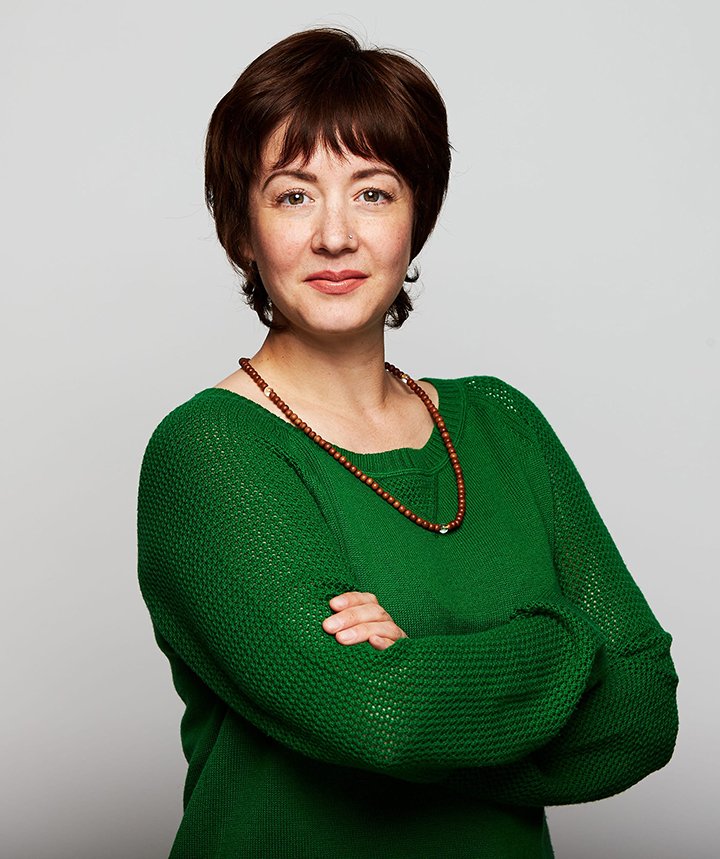
Advisors
Boaz Sender manages the web platform consulting company Bocoup where he works to make the web more predictable and inclusive through technology standards development and engineering. At the Berkman Klein Center, Boaz is active in the ethics working group, where he is working on a critique of the values embedded in “open source” production. Between 2016 and 2017, Boaz ran a contemporary art gallery with a focus on tech criticism. During this time he curated works from artists exploring the role and impact of technology on society. From 2011 until 2017, Boaz was an invited expert to the W3C where he started the Games community group, outlining a roadmap for “open web games”, and contributed to the web-platform-tests initiative. During this same period, Boaz also contributed to the jQuery, Backbone, and Grunt projects and helped start the jQuery Foundation where he served as a board member until its relaunch as the JS Foundation. Prior to Bocoup, Boaz worked as a front-end developer for a dot-com where he built early client side web applications. Boaz studied Liberal Arts at Bennington College from 2003 to 2005. His software production education came from working in open source communities, writing documentation, and working as a web developer.
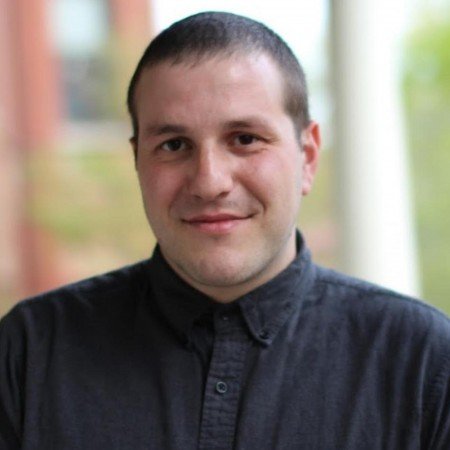
Casey Reas (he/they) is an artist and educator based in Los Angeles. He has exhibited, screened, and performed his work in galleries and museums. Reas is a professor at the University of California, Los Angeles. He holds a master’s degree from the Massachusetts Institute of Technology in Media Arts and Sciences as well as a bachelor’s degree from the School of Design, Architecture, Art, and Planning at the University of Cincinnati. With Ben Fry, Reas initiated Processing in 2001.
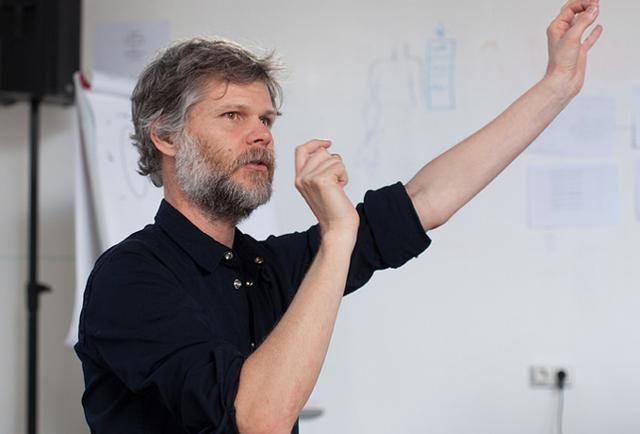
Daniel Shiffman (he/him) works as an Associate Arts Professor at the Interactive Telecommunications Program at NYU’s Tisch School of the Arts. Originally from Baltimore, Daniel received a BA in Mathematics and Philosophy from Yale University and a master’s degree from the Interactive Telecommunications Program. He is the author of Learning Processing: A Beginner’s Guide to Programming Images, Animation, and Interaction and The Nature of Code (self-published via Kickstarter), an open source book about simulating natural phenomenon in Processing.

John Maeda (he/him) is Global Head, Computational Design and Inclusion at Automattic. He is a former Design Partner at Kleiner Perkins Caufield & Byers and the former President of the Rhode Island School of Design from 2008 to 2013. He is a recipient of the National Design Award and his work is represented in the permanent collection of the Museum of Modern Art. Beginning in 1996, lasting for 13 years, he was a Professor at MIT, where he served as an Associate Director of Research at the MIT Media Lab and was responsible for managing research relationships with 70+ industrial organizations. He received a Ph.D. in Design Science from the University of Tsukuba Institute of Art and Design in Japan. In May 2003, he received an Honorary Doctorate of Fine Arts from the Maryland Institute of Contemporary Art. He received an MBA from Arizona State University in May 2006.
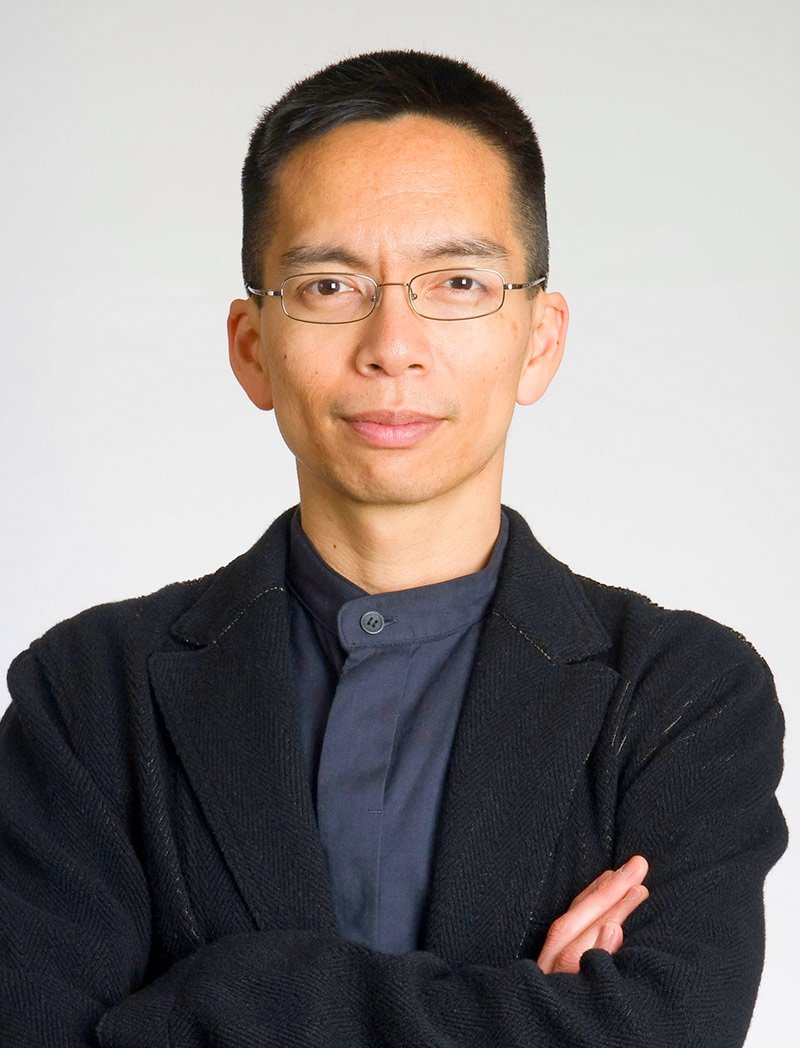
Josette Melchor (she/her) is the Founder of Gray Area, and the Head of Cultural Programming for the future cities initiative at the We Company. In 2008, she led the effort to incorporate Gray Area into a 501(c)3 nonprofit, enacting her pioneering vision of a living creative hub for the integrated practice of art and technology, a uniquely San Franciscan institution globally recognized for its forward-looking programming around creative coding education and cultural incubation. Melchor’s background as a queer, third-generation Mexican-American has grounded her deep commitment to safeguarding diverse communities in the midst of a rapidly gentrifying San Francisco. In collaboration with the City of San Francisco, she created the first Urban Prototyping Festival in 2012, creating a platform for citizens to address civic issues through public activations, which has since been copied worldwide. In 2016, Melchor instigated the first exhibition that paired artificial neural networks with artists, which helped establish the Artists and Machine Intelligence program at Google, ushering in a new movement in Artificial Intelligence assisted artwork. She most recently spearheaded the development of Gray Area’s Knight Foundation-supported Experiential Space Research Lab, developing sustainable models for artists to work within the quickly evolving format of immersive experiences.
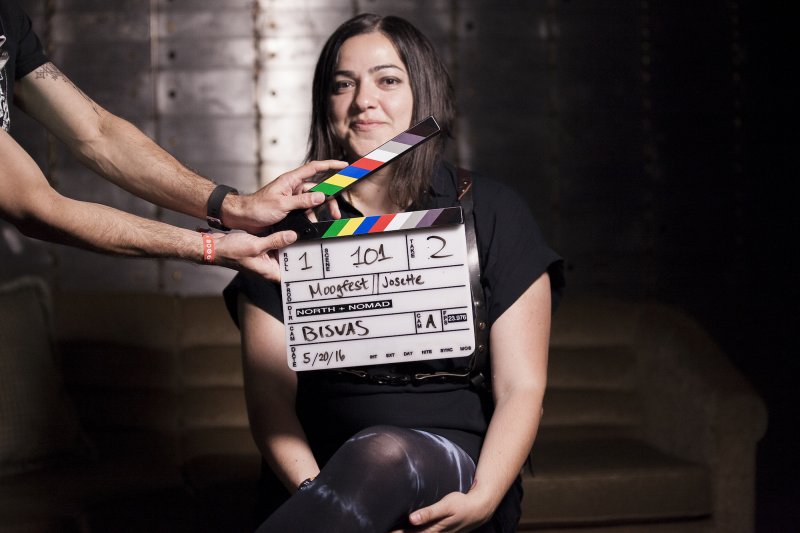
Kate Hollenbach (she/they) is artist and educator based in Denver, Colorado, where she is an Assistant Professor of Emergent Digital Practices at the University of Denver. She develops interactive systems with emerging technologies to create video, installation, print, and interactive works that relate body, gesture, and physical space. Their work addresses a new vernacular of interface design that spans across gesture, language, and visual design as sensors, cameras, and personal data play a pivotal role in human computer interaction. She has presented and exhibited work at venues including the San Francisco Museum of Modern Art, SIGGRAPH, Strange Loop, and INST-INT. Kate holds an MFA from UCLA Design Media Arts and a B.S. in Computer Science and Engineering from MIT.
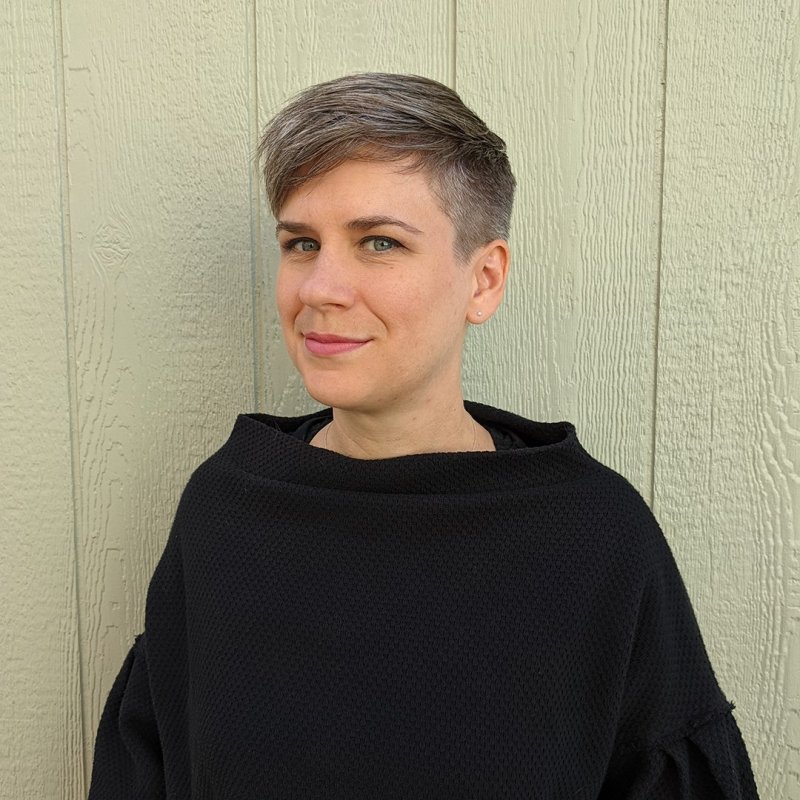
Phoenix Perry creates physical games and user experiences. Her work looks for opportunities to bring people together to raise awareness of our collective interconnectivity. A consummate advocate for women in game development, she founded Code Liberation Foundation. Code Liberation catalyzes the creation of digital games and creative technologies by women, nonbinary, femme, and girl-identifying people to diversify STEAM fields. Since starting in 2012, this project has helped to foster a new generation of creators. Currently, she is a Lecturer in Physical Computing at Goldsmiths, University of London.
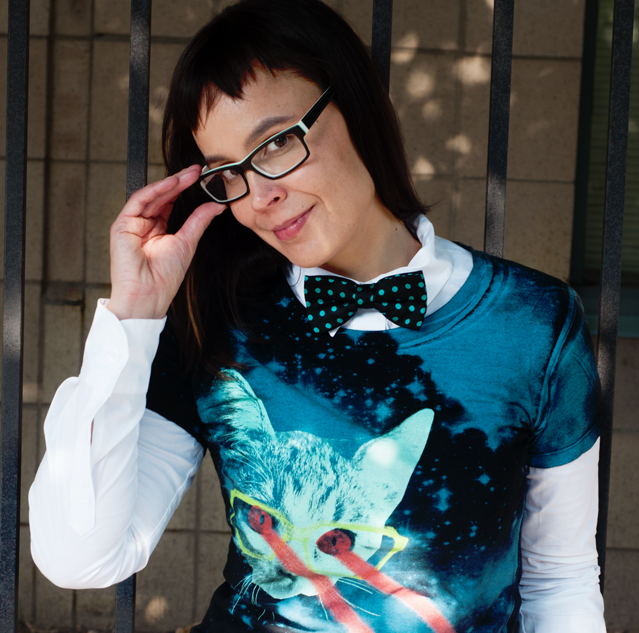
Dr. Rhazes Spell is enamored with media art and technology as a platform for creation and learning. As an artist he is interested in speculative data narratives: how stories shape facts and how “facts” shape cultural plots and identity. As an educator he is continuously fascinated with the power of media art and technology platforms for engaged learning within the humanities and sciences. He is particularly interested in pedagogical practices of mathematics and computational science, media and cultural theory, and design research. Rhazes’s background includes a PhD in biomedical engineering from Duke University, a MFA in Design|Media Arts from UCLA, and experience consulting for companies in a variety of industries. He has been a faculty member in the School of Design at Victoria University of Wellington in New Zealand and is currently a part-time faculty member at University of Southern California, where he is teaching creative web coding and design speculative narratives. Lately his musings include a burgeoning fascination with opera and learning to navigate a socially mediated world as an introvert.
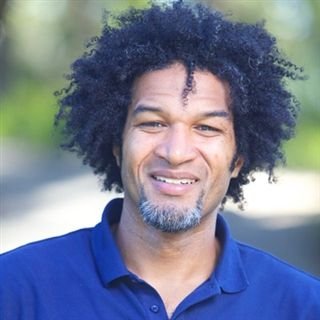
Stalgia Grigg (she/they) is an artist and activist that is loyal to the indeterminate. Her art practice uses simulation and inconsistent algorithms to explore the boundaries of change within seemingly metastable systems. Stalgia learned to code with tools made by the Processing Foundation. That experience heavily informs her tool-making and community-building practice. She is currently working on a new body of studio work, polishing an XR library for p5.js, and designing a collaborative platform for prisoner advocacy education. Stalgia has exhibited work at Human Resources, the Hammer Museum, and Coaxial Arts Foundation. She received her MFA from UCLA, and her BSVA from Purchase College.
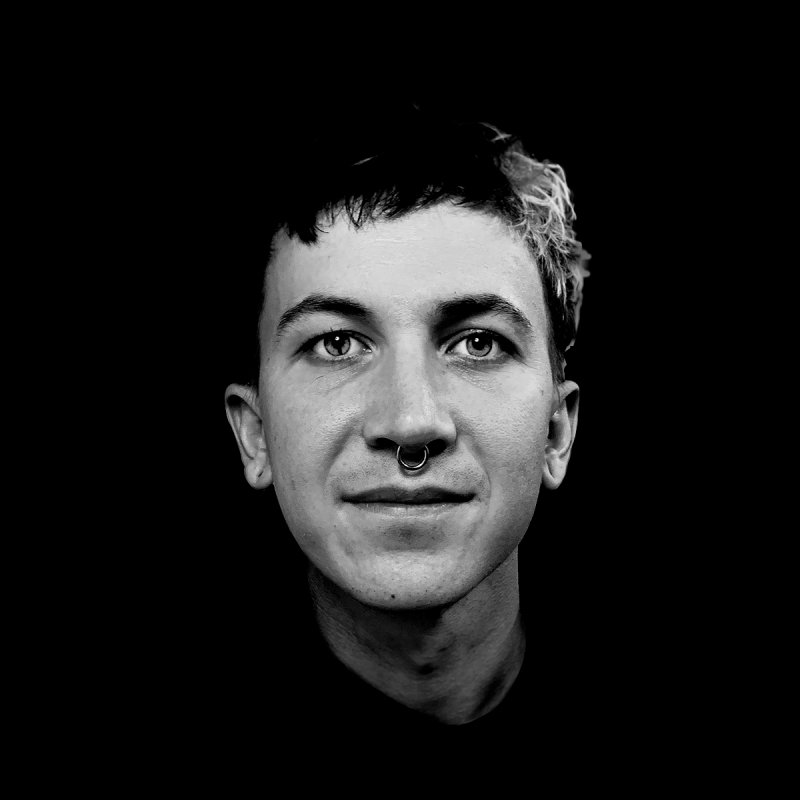
Xiaowei R. Wang (they/them) is an artist, writer, organizer and coder whose work centers community driven tech and the importance of care in organizing for a more just future. Their collaborative project FLOAT Beijing created air quality-sensing kites to challenge censorship and was an Index Design Awards finalist. Other projects have been featured by The New York Times, BBC, CNN, VICE and elsewhere. Their most recent project, The Future of Memory, was a recipient of the Mozilla Creative Media Award. They are the author of the book Blockchain Chicken Farm: And Other Stories of Tech In China's Countryside and one of the lead facilitators of Logic School, an organizing community for tech workers.
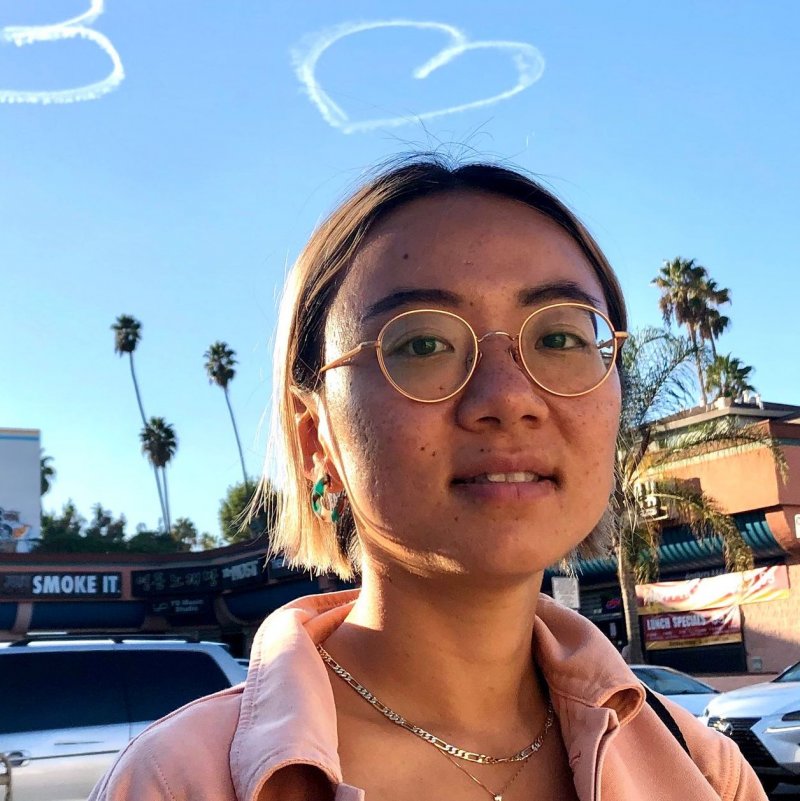
Claire Kearney-Volpe (she/her) is an Art Therapist, Digital Accessibility Professional, Designer and Researcher. She holds a Master's Degree from New York University's Interactive Telecommunications Program and is currently a PhD Candidate in NYU's Rehabilitation Sciences Program, Web Accessibility Fellow at CUNY, and Research Fellow at the NYU Ability Project. Her work centers around Participatory Design, Disability, Human Computer Interaction, as well as, the accessibility of code languages and code pedagogy.
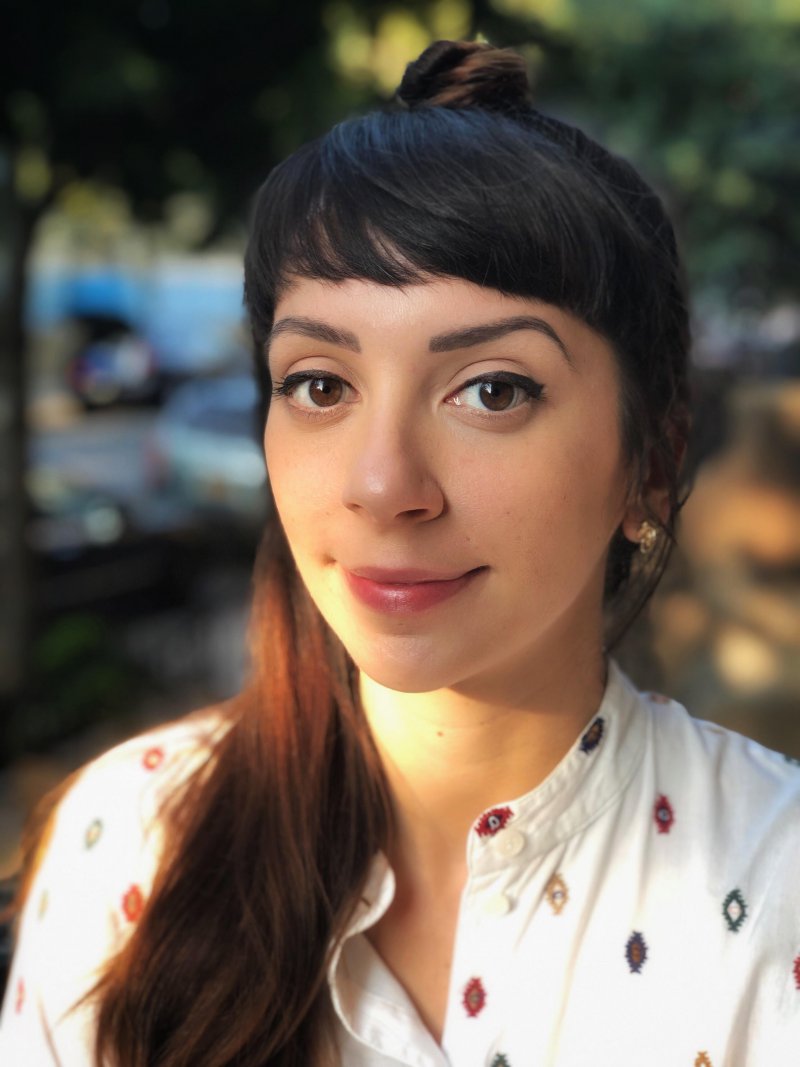
Alums
Tonz Beglari (they/them) is an interactive designer and creative technologist known for a collaborative art practice that playfully engages social issues. Their projects have been showcased at festivals like Indiecade, Tribeca, and Games for Change and have been covered in Vice, Refinery29, and American Quarterly. After running the new media platform Browntourage, Tonz went on to earn an M.F.A. in Interactive Media & Game Design from the University of Southern California. Recently, their commercial work has grown to develop web and mixed reality attractions with theme parks, museums, and arts institutions. In addition to this, Tonz enjoys sharing their skills through courses and workshops in creative coding, motion capture, and web design.
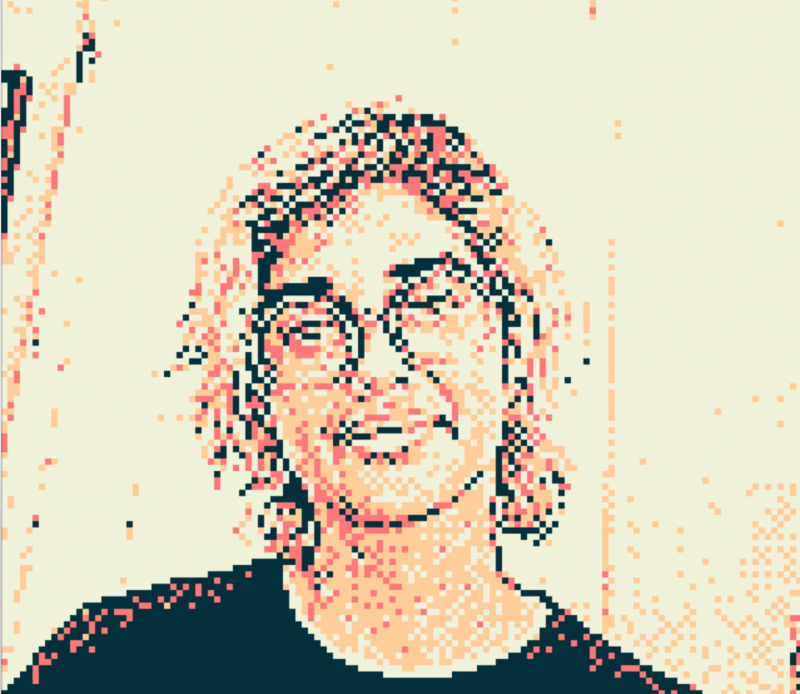
Suhyun (Sonia) Choi (they/them) is a Queerean artist and organizer. Growing up in different contexts has given them first-hand experiences in understanding the complexity of globalization, capitalism, colonialism, and how the macro affects the micro levels of human ontology and relationships. This third-culture kid upbringing informs the nature of their art practice and organizing. They are a co-founder of BUFU, a project-based collective centering QTBIPOC. BUFU has been covered by publications such as the Village Voice, NYLON, Hyperallergic, the Fader, and many more. They have worked with institutions such as the Brooklyn Museum, Queens Museum, New Women Space, the New Museum, and Abrons Art Center.
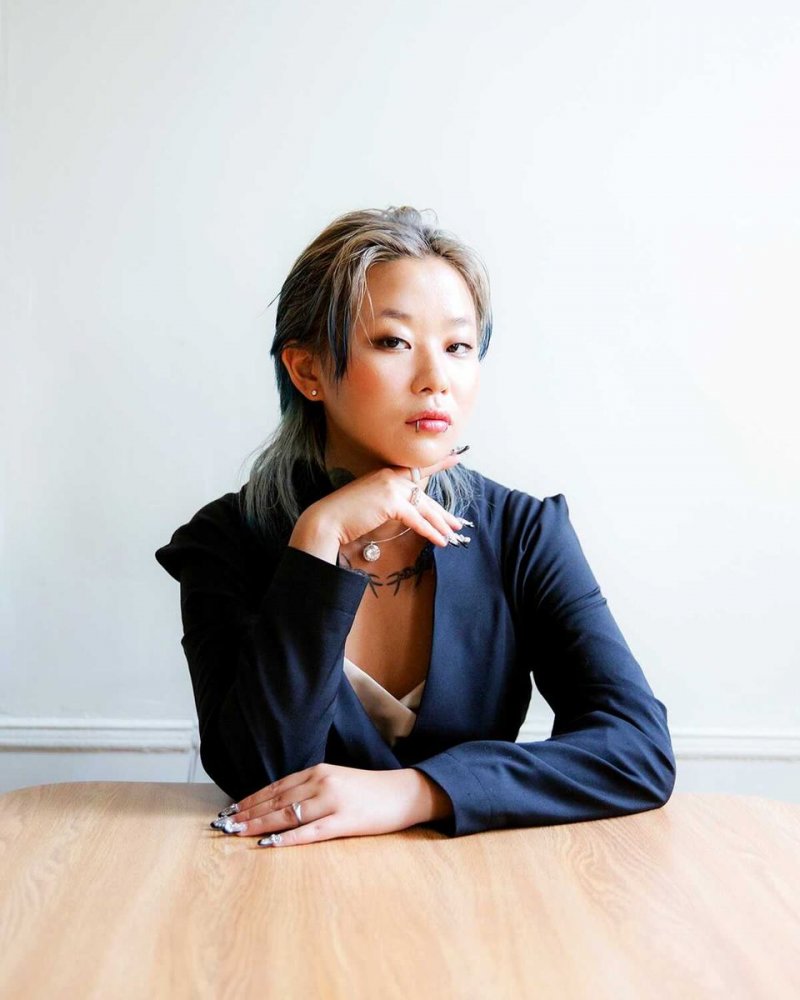
Taeyoon Choi (he/they) is an artist and educator based in New York and Seoul. His art practice involves performance, electronics, drawings, and storytelling that often leads to intervention in public spaces. Choi collaborates with fellow artists, activists, and professionals from other fields to realize socially engaged projects and alternative pedagogy. He was an artist-in-residence at Eyebeam Art and Technology Center and Lower Manhattan Cultural Council. He has published books about urbanism and is currently working on a book of drawings about computation. Choi cofounded the School for Poetic Computation in 2013, where he continues to organize and teach. Recently, he's been focusing on unlearning the wall of disability and normalcy, and enhancing accessibility and diversity within art and technology.
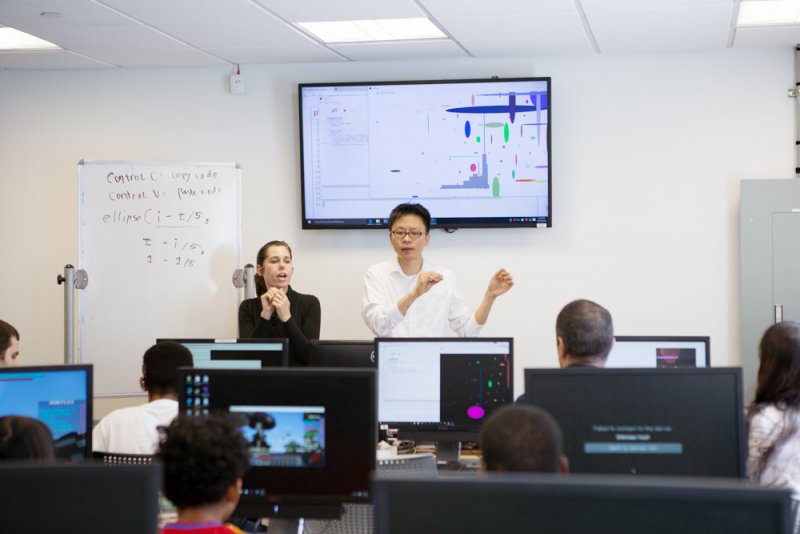
Jonathan Feinberg (he/him) created Python Mode in order to provide the existing ecosystem of Processing concepts, programs, and libraries available to Python programmers. He is a musician, husband, and father of two boys, living in Lincoln, Massachusetts. He is the tech lead/manager for a team that makes a high-performance vector graphics drawing engine, at Google.
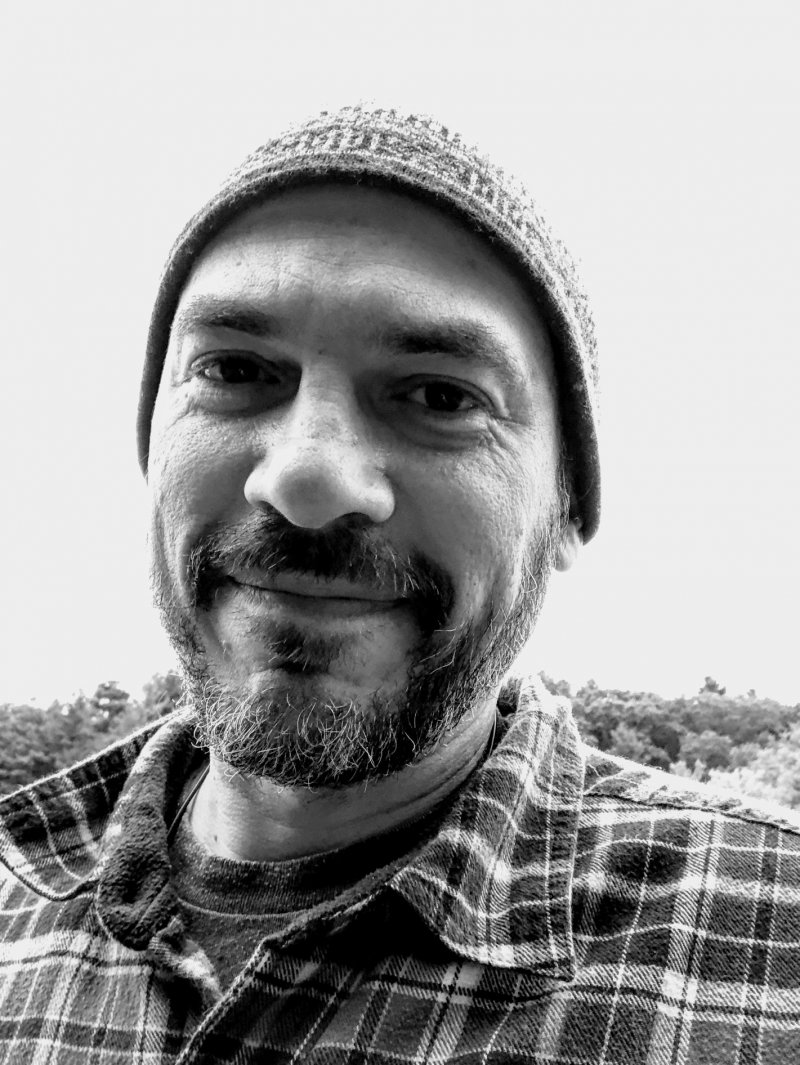
Ben Fry (he/him) is principal of Fathom, a design and software consultancy located in Boston. He received his doctoral degree from the Aesthetics + Computation Group at the MIT Media Laboratory, where his research focused on combining fields such as computer science, statistics, graphic design, and data visualization as a means for understanding information. After completing his thesis, he spent time developing tools for visualization of genetic data as a postdoc with Eric Lander at the Eli and Edythe L. Broad Institute of MIT and Harvard. In 2011, he won the National Design Award for Interaction Design from the Cooper-Hewitt. With Casey Reas, Fry initiated Processing in 2001.
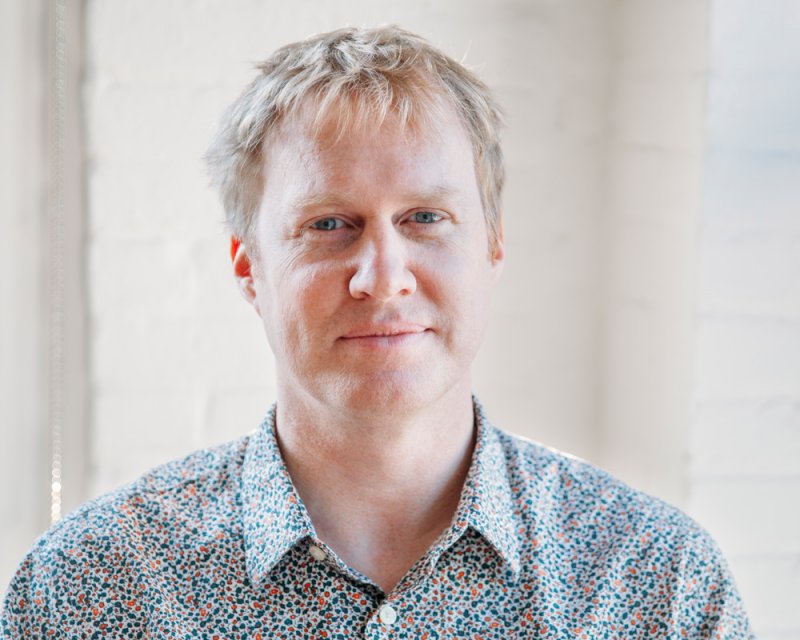
Saber Khan (he/they) is a Bengali-American educator. He is a veteran K12 educator with over 15 years of experience teaching math, science, and computer science in public and private middle and high schools. Currently, he teaches multiple introductory and advanced computer science classes in creative coding and web development. And he organizes events and spaces for educators to engage with code, ethics, and equity. He loves email.
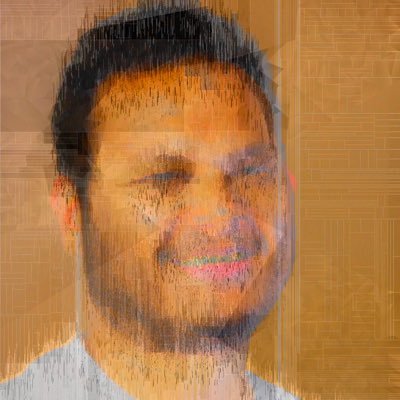
cypress masso (p5.js Mentor) (she/they) is a person (all the time), a tech worker (on weekdays), and a poet (on weekends). She has been contributing to p5.js (on-and-off) since 2016, was a p5.js co-lead for 2021, and is serving as a p5.js Mentor for 2022. Originally from Ohio, she currently lives on unceded Tongva land (near Los Angeles) with a collection of moody houseplants. She enjoys roller skating, babysitting her two godsons, and hanging out by the Los Angeles River.
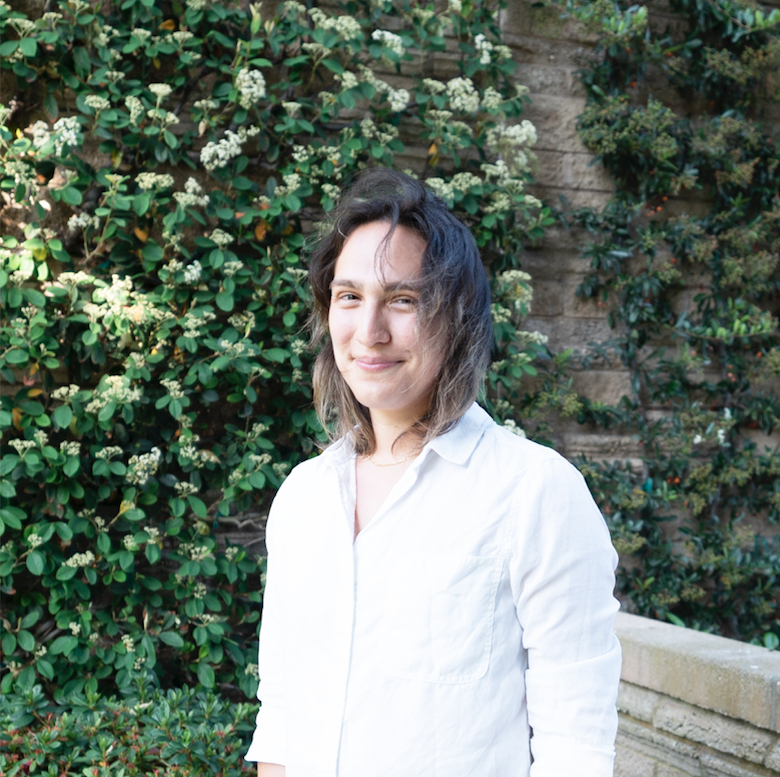
Lauren Lee McCarthy (creator of p5.js) (she/they) is an artist having social relationships in the midst of automation, surveillance, and algorithmic living. She has received grants and residencies from Creative Capital, United States Artists, LACMA, Sundance, Eyebeam, Pioneer Works, Autodesk, and Ars Electronica. Her work SOMEONE was awarded the Ars Electronica Golden Nica and the Japan Media Arts Social Impact Award, and her work LAUREN was awarded the IDFA DocLab Award for Immersive Non-Fiction. Lauren's work has been exhibited internationally, at places such as the Barbican Centre, Fotomuseum Winterthur, Haus der elektronischen Künste, Seoul Museum of Art, Chronus Art Center, SIGGRAPH, Onassis Cultural Center, IDFA DocLab, Science Gallery Dublin, and the Japan Media Arts Festival.
Lauren is also the creator of p5.js, an open-source art and education platform that prioritizes access and diversity in learning to code, with over 10 million users. She expanded on this work in her role from 2015–21 on the Board of Directors for the Processing Foundation, whose mission is to serve those who have historically not had access to the fields of technology, code, and art in learning software and visual literacy. Lauren is a Professor at UCLA Design Media Arts. She holds an MFA from UCLA and a BS Computer Science and BS Art and Design from MIT.
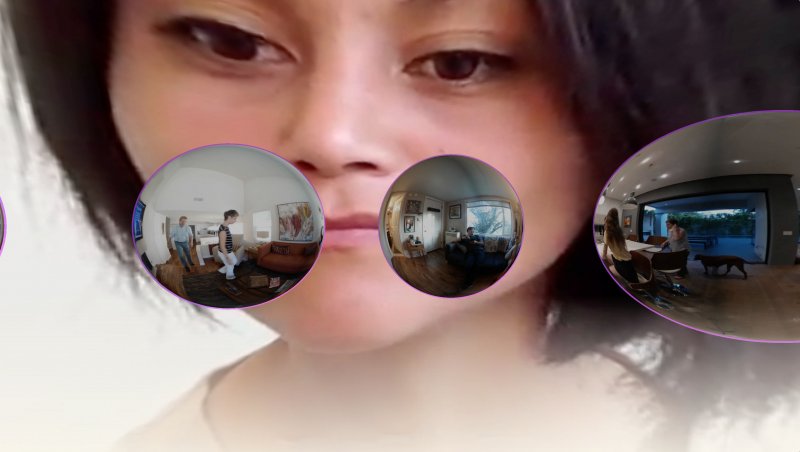
Toni Pizza (Grants and Finance Manager) (she/her) is a game designing, event organizing, community building, irregularly tweeting, grant managing, narrative-design teaching, soccer playing, tiny queer girl.
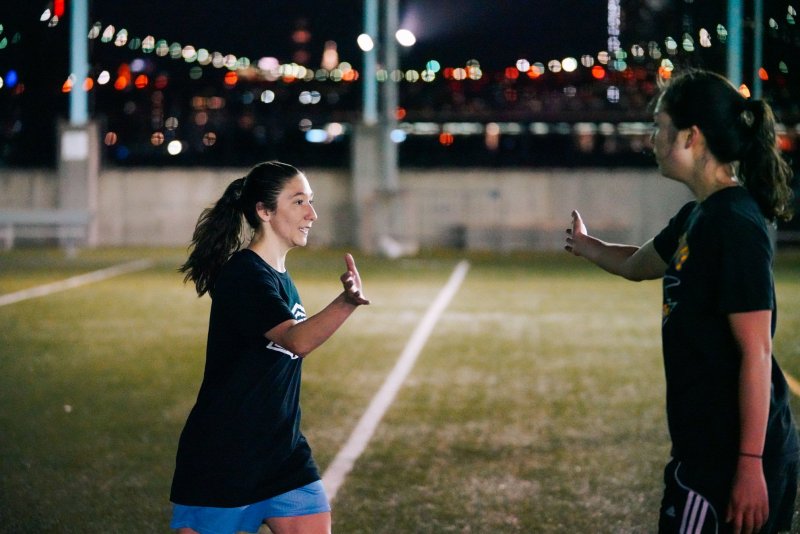
Dorothy R. Santos (she/they) is a Filipino American writer, artist, and educator. She earned her Ph.D. in Film and Digital Media with a designated emphasis in Computational Media from the University of California, Santa Cruz. Her service to the field includes being a steward and mentor to Collective Action School (formerly known as Logic School), an online, experimental school for tech workers produced by Logic Foundation with support from Processing Foundation. She is also an advisor to art and culture organizations, including slash art, POWRPLNT, Looking Glass, and House of Alegria.
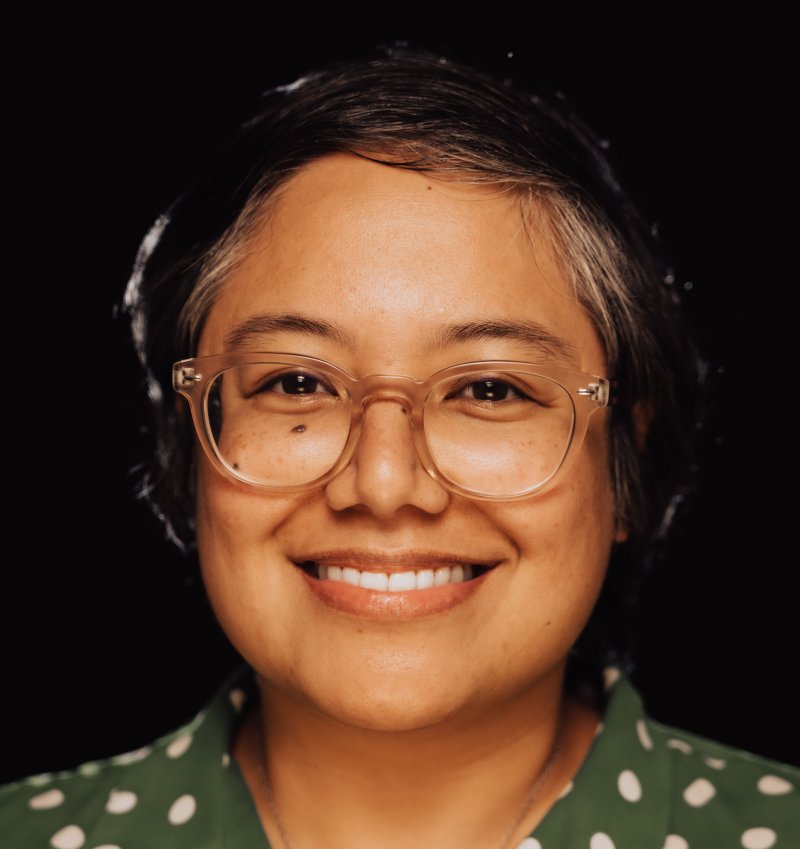
Izzy Snyder (she/her) is a generative art enthusiast who lives in Vermont. She graduated from Oberlin College in 2023 with a degree in Computer Science and Studio Art, and spent the two years after graduating as an elementary school teacher. She is passionate about art, disability and social justice, and interdisciplinary applications of technology. In her free time she can be found assembling jigsaw puzzles, playing Stardew Valley, petting cats, making prints, and watching birds.
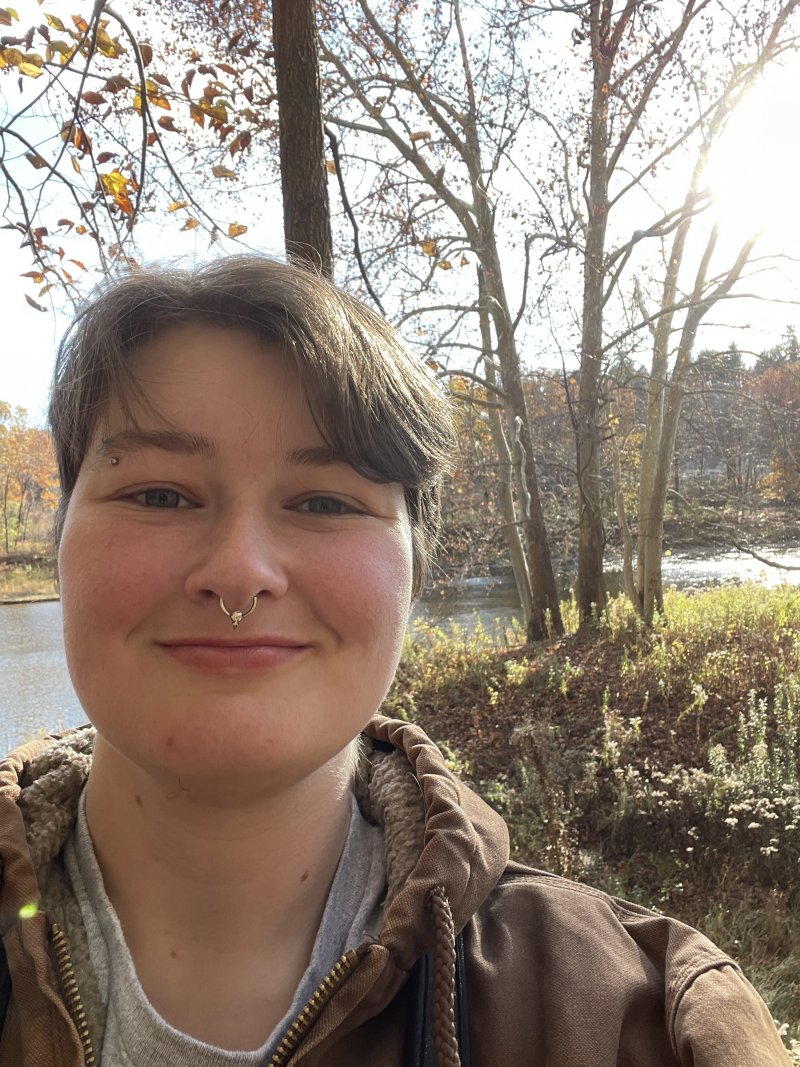
Tsige Tafesse (she/they) is a technologist, artist, and art worker currently pursuing a Master’s degree in Curating Cultures at the University of London, SOAS. They were a curatorial fellow at The Kitchen NYC, part of the Studio Museum of Harlem’s Arts Leadership Praxis program, and a member of NEW INC Art & Code Year 10 cohort. She has worked with institutions including New Museum, The Africa Center, The New School, School for Poetic Computation, and TED. They have spoken at spaces such as Princeton University, Creative Time, MoMa, Art Basel, The Studio Museum of Harlem, University of Washington, NYU, Vera List Center, Afrotectopia, MoMA PS1, and others, and led programs or consulted at Brooklyn Museum, Seattle Art Museum, Queens Museum, Allied Media Conference, Rubin Museum, and The Metropolitan Museum of Art. They served on the board for Young Women Empowered (Y-WE) and the committee for Open Source Arts Contributor Conference (OSACC). They were published in Software for Artists Book: Building Better Realities (Pioneer Works). Tsige has been a Ford Foundation Art & Technology 2021–22 New Media Leadership cohort member and an artist in residence at EYEBEAM, Brooklyn Community Foundation, and NYU Tandon. As a co-founder of BUFU, they led large-scale community projects globally from 2015–2020. Tsige received a BFA from The New School with a Dean’s Merit Scholarship. Press features include Fader Magazine’s '22 People Who Show Us Where Culture is Going,' ID Magazine’s 'Female Curators to Watch in NY,' and Cult Classic Magazine’s “Future Visionary.” They were honored as a Yerba Buena Center for the Arts 100 for “innovators whose work through art and activism provoke, inspire, ground, heal, and bring us together."
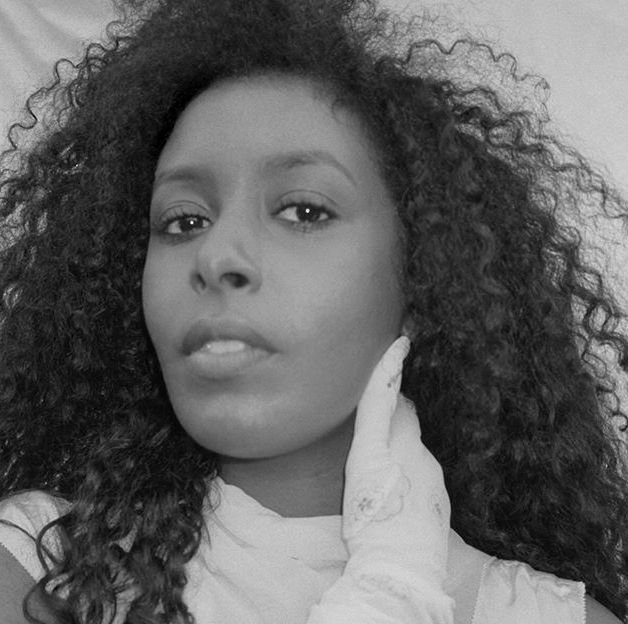
Ferrin T is a NYC-based African American multidisciplinary artist and technologist in the early stages of her practice. They graduated with a Bachelor's Degree in Computer Science in 2023 and hold a background in music theory. She works as a software engineer and instrumentalist. Music and digital/physical computation are the backbones of her creative applications. Through various multimedia projects, their work captures themes of paranoia and curiosity within the lived Black (queer) experience. Community involvement with the School for Poetic Computation and Synth Library makes the infrastructure of their practice possible. She is someone who appreciates languages, atypically so.
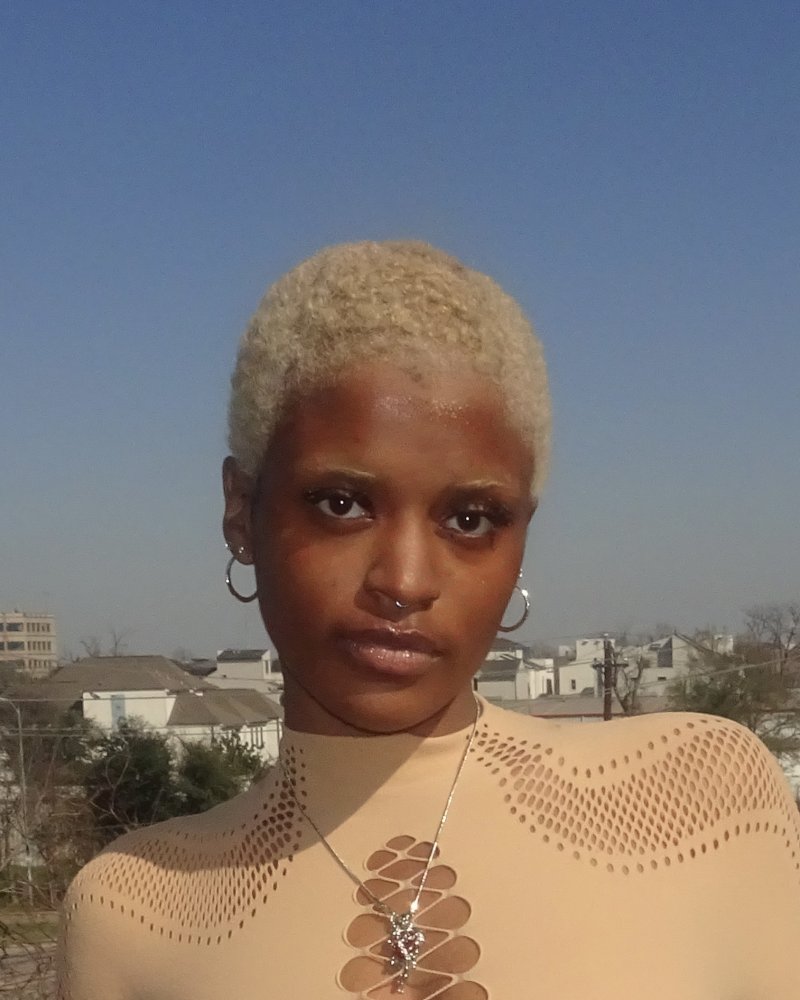
Dorine Tipo (she/her) is a software engineer and open-source contributor with a passion for accessibility, inclusion, and the intersection of art, education, and technology. With a background in biology and a deep curiosity for computing, she transitioned into tech to explore how technology can empower marginalized communities and make the world more accessible for everyone.
She has contributed to several open-source projects and founded peer groups dedicated to fostering collaboration and inclusion, particularly for women and underrepresented voices in tech. She appreciates how creative tools not only support self-expression and visibility but also serve as a powerful means to drive empowerment through technology. She is excited about leveraging digital archives and creative coding platforms to preserve cultural memory and elevate diverse voices in media art.
When she’s not coding or mentoring, you’ll likely find her enjoying classic foreign films or experimenting with innovative ways to tell stories through technology.
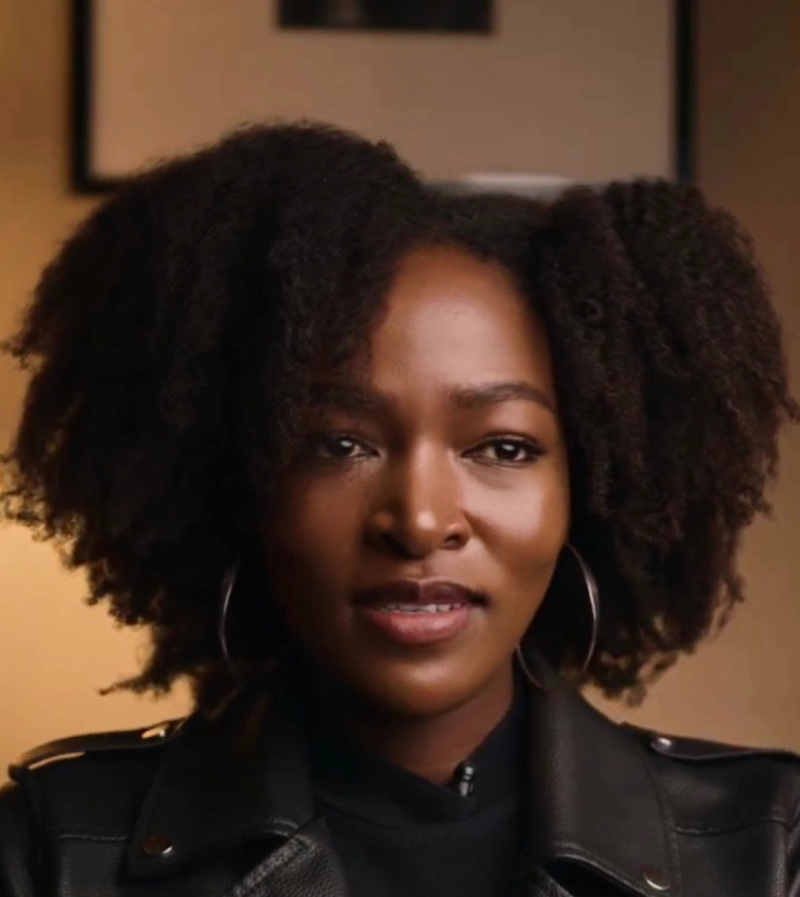
Sonya Zheng (she/her) is a Chinese-American high school senior at Brooklyn Technical High School. She is passionate about programming and will be studying Computer Science at Cornell University. She enjoys playing badminton and Genshin Impact, coding, listening to music, and reading web novels.
